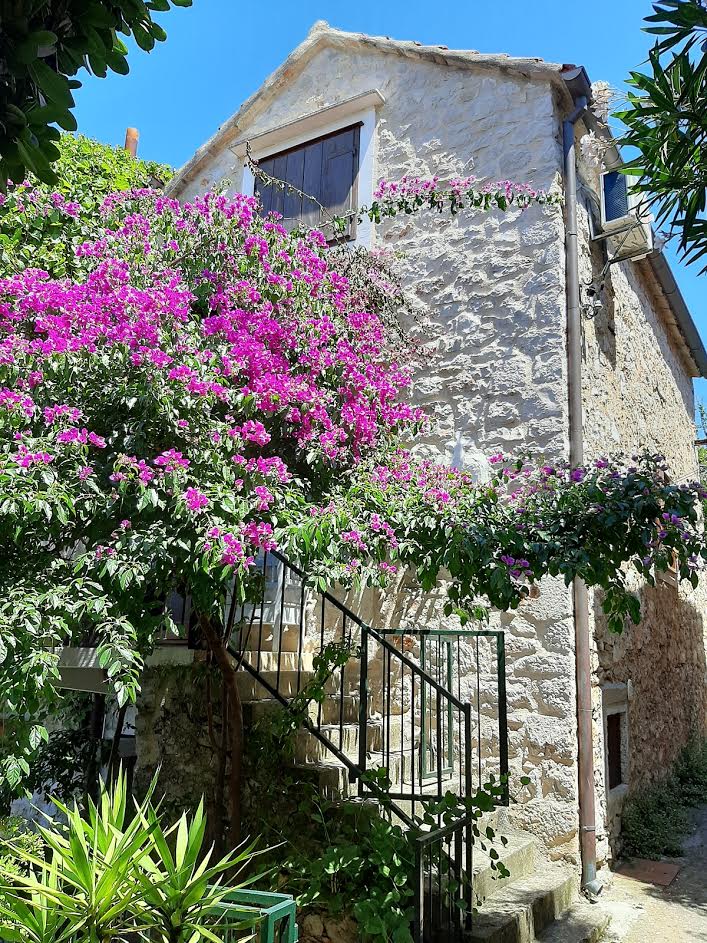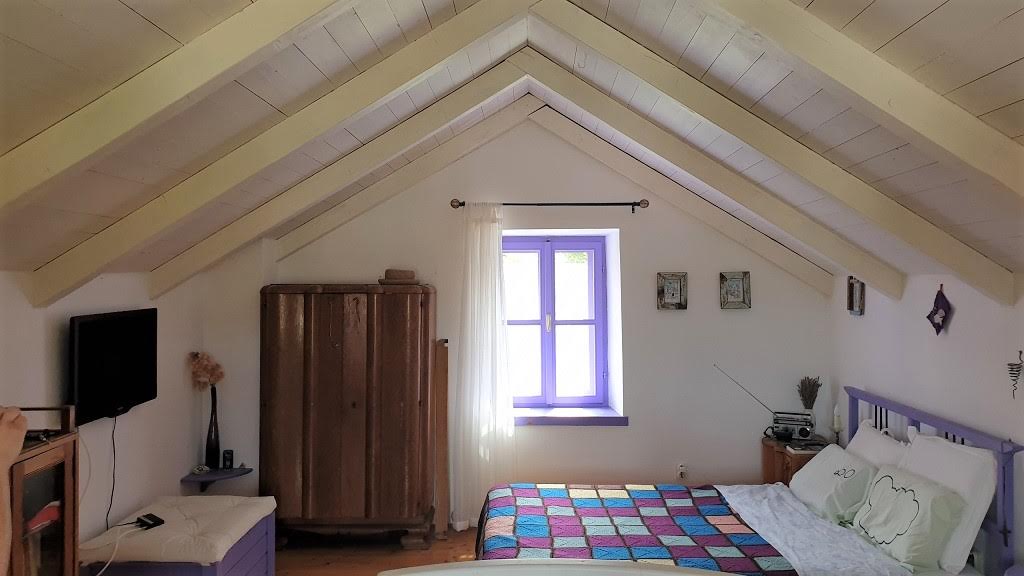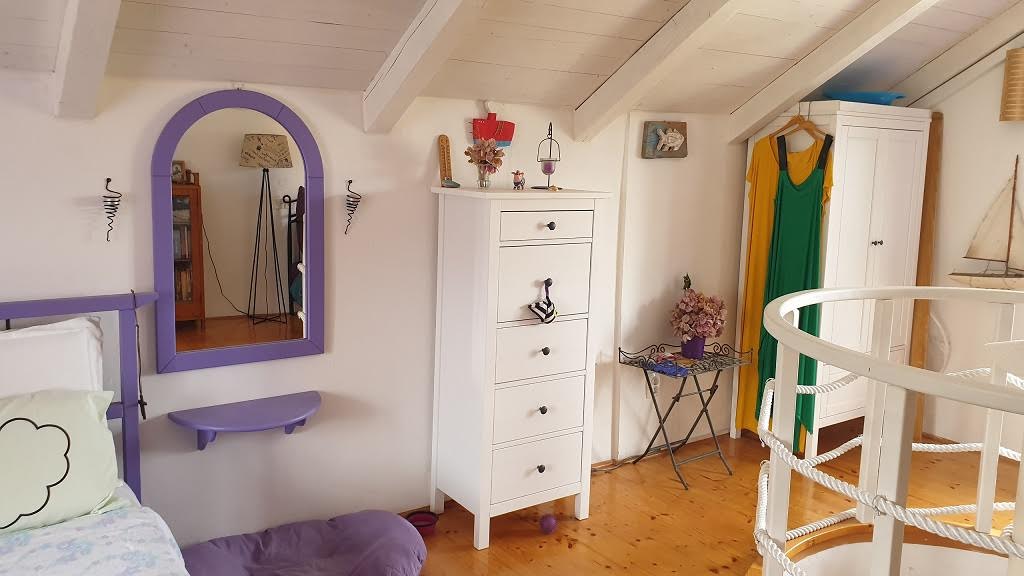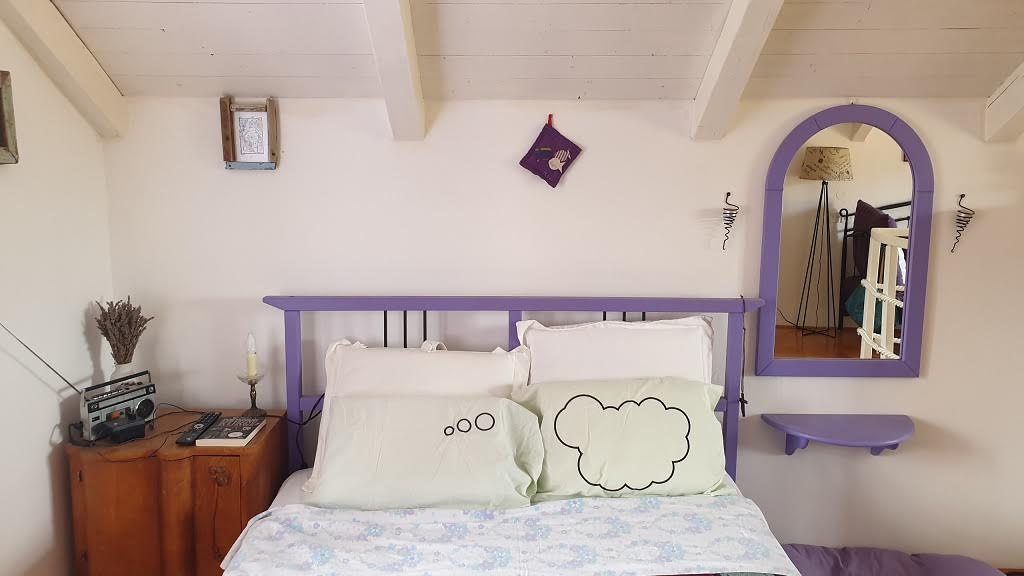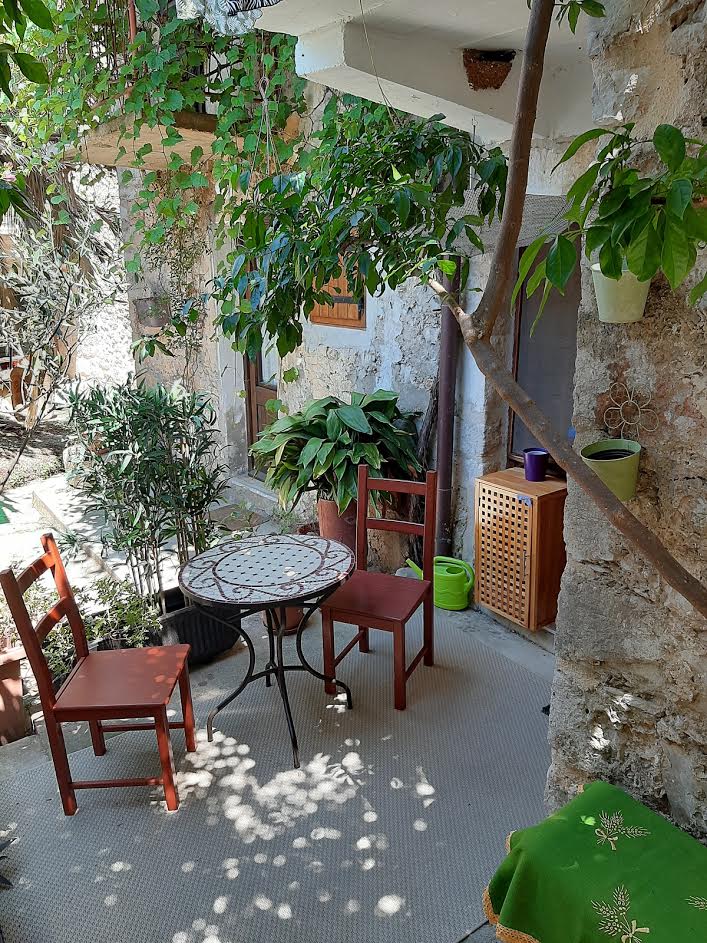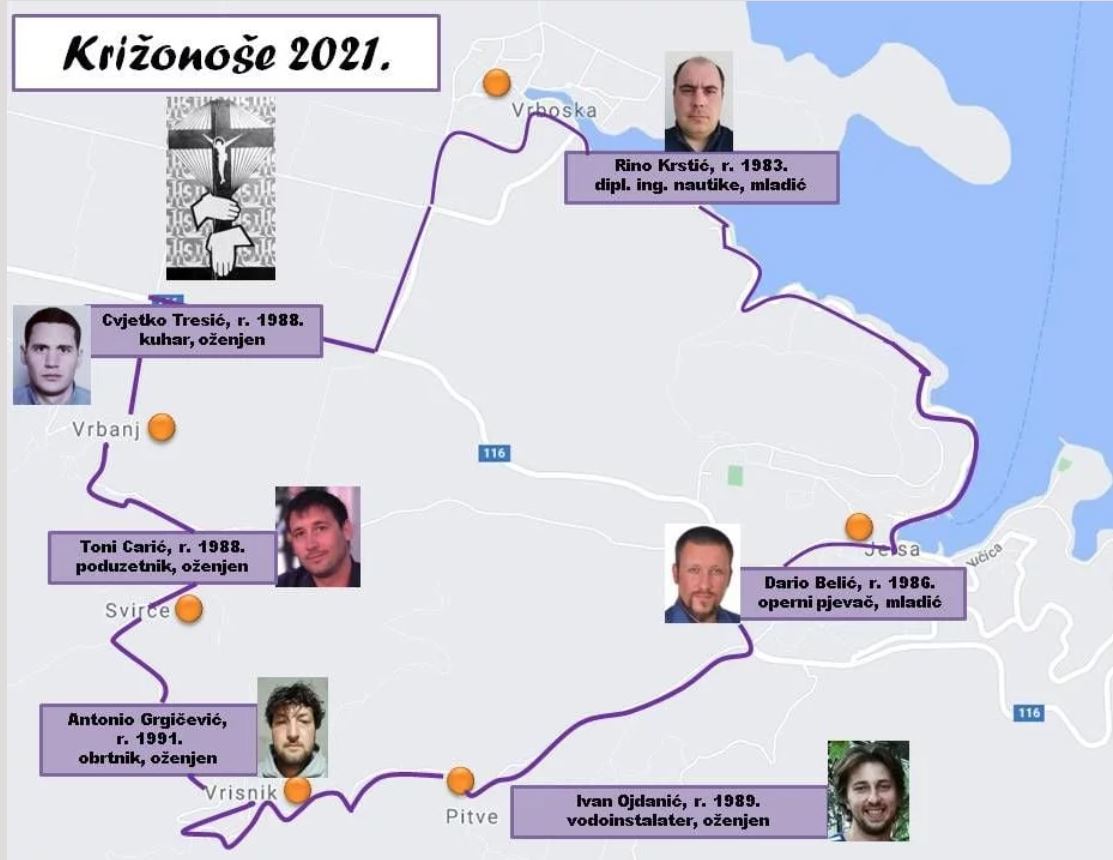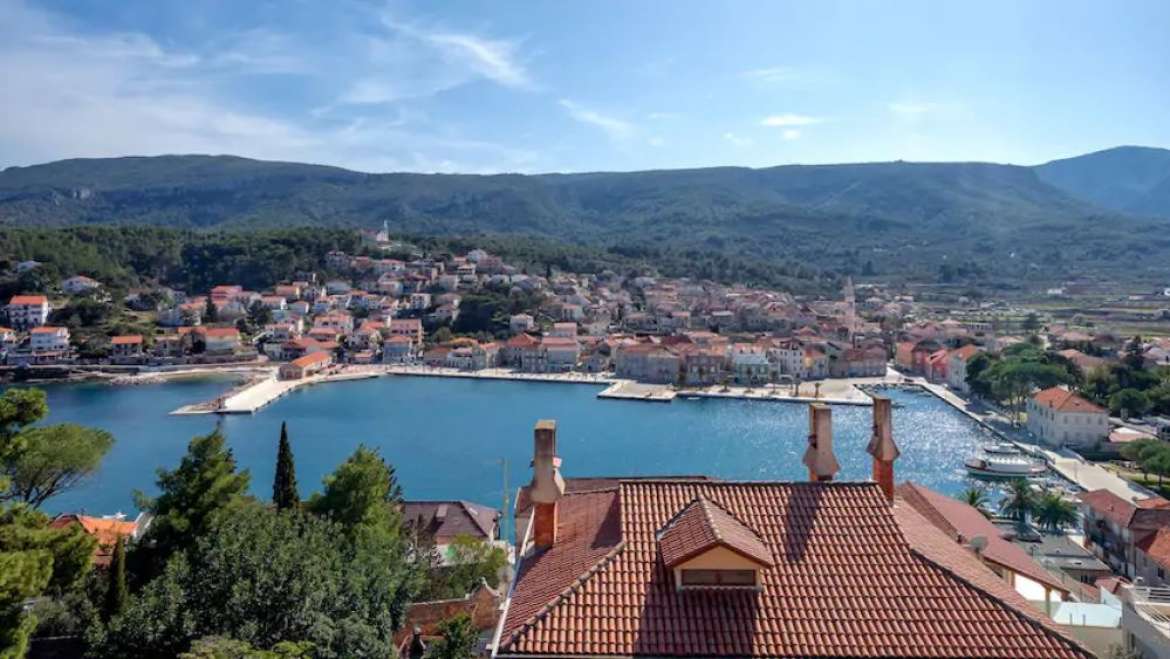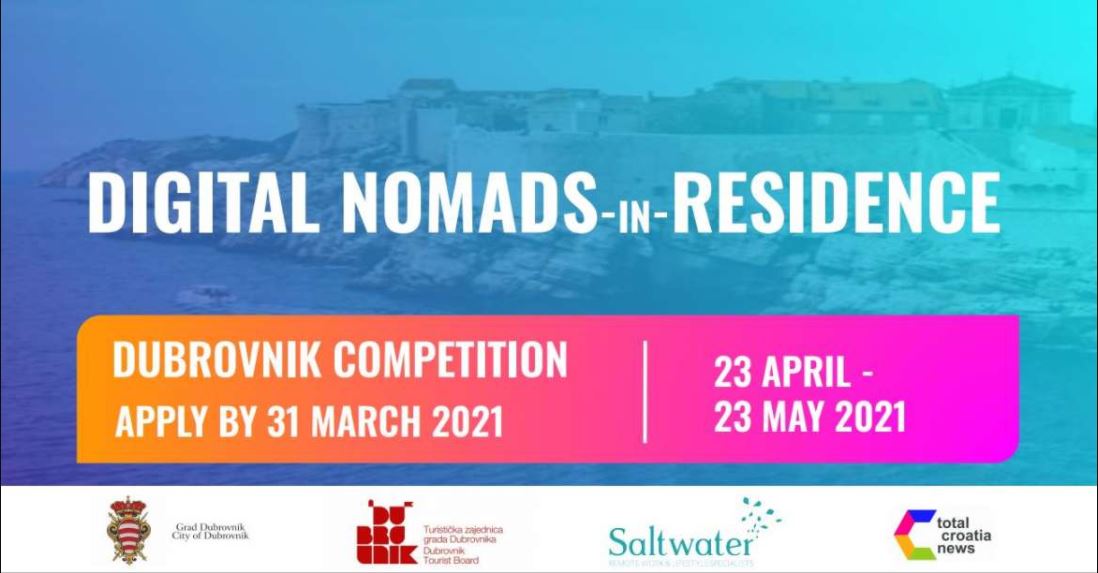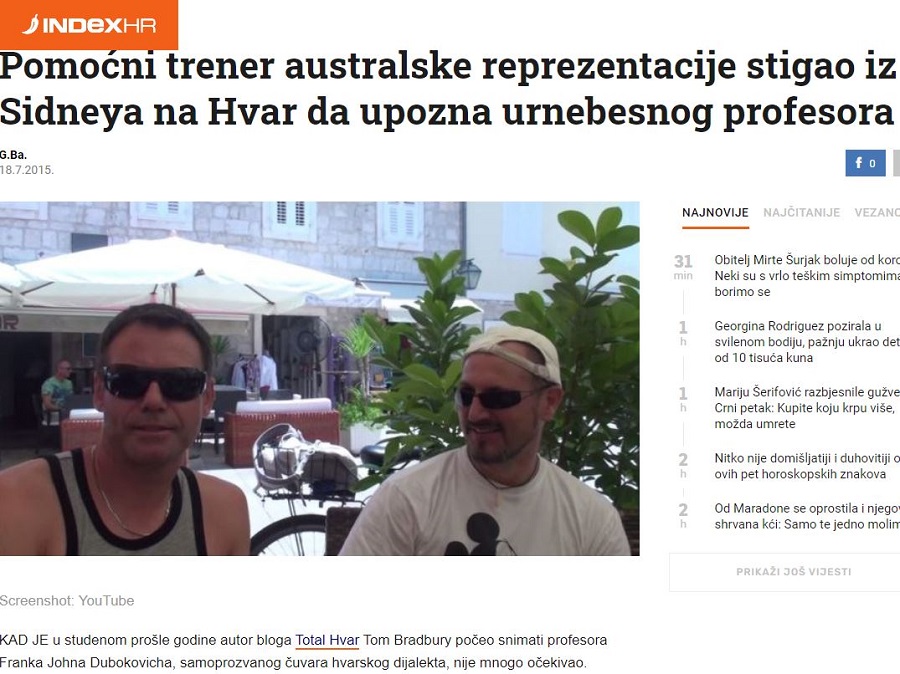Astronomy Days Celebrated With Jelsa's Clear Night Sky
June 16, 2021 - The first Croatian town to join the International Dark Sky Community continues to prove that its clear, star-filled sky continues to rank it as one of the top astrotourism destinations, with Jelsa celebrating its Astronomy Days from June 10th to 14th.
In cooperation with the Croatian Astronomical Association, the Jelsa Tourist Board, and the Leo Brenner Astronomical Society, the Astronomy Days were organized in Jelsa between June 10th and 14th, which is another step of Jelsa towards the development of astrotourism, reports Turističke priče. As part of the program, primary school children learned how to observe the sun with telescopes, but also everything about the stars and light pollution. The workshops introduced the children to the most important constellations and the brightest stars currently seen in the sky, as well as the problem of light pollution, like the reason why we are missing stars.
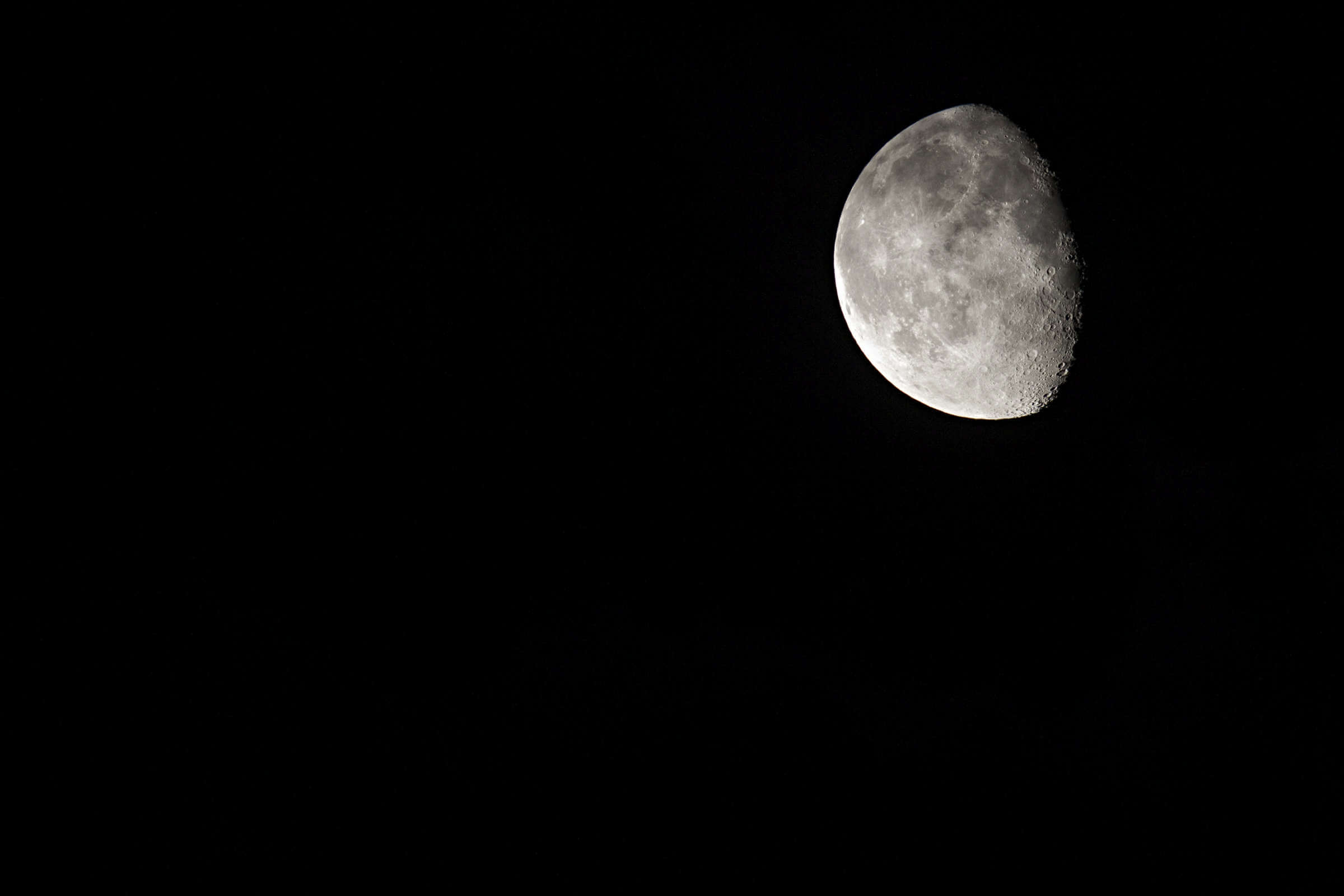
Participants were able to take a photo of the moon with their own smartphones (Credit: Mario Romulić)
The stars will be the brightest tourist product of Jelsa, which should acquire the status of the International Dark-Sky Community by the end of the year and become the first municipality/city in Croatia to proudly bear that title. This title confirms Jelsa as a destination that has an exceptional quality of the night sky and respects high environmental standards in terms of light pollution, which together make a big step towards creating an astro-tourist offer in the area of Jelsa.
In addition to workshops for children in Jelsa, public observations with telescopes for citizens and tourists were organized as part of Astronomy Days. The astronomical evening in Zavala and the Moon from Zastražišće attracted visitors, and on both observations, apart from looking through the telescope, it was possible to photograph the moon with your own smartphone through the telescope, so many took with them a fond memory.
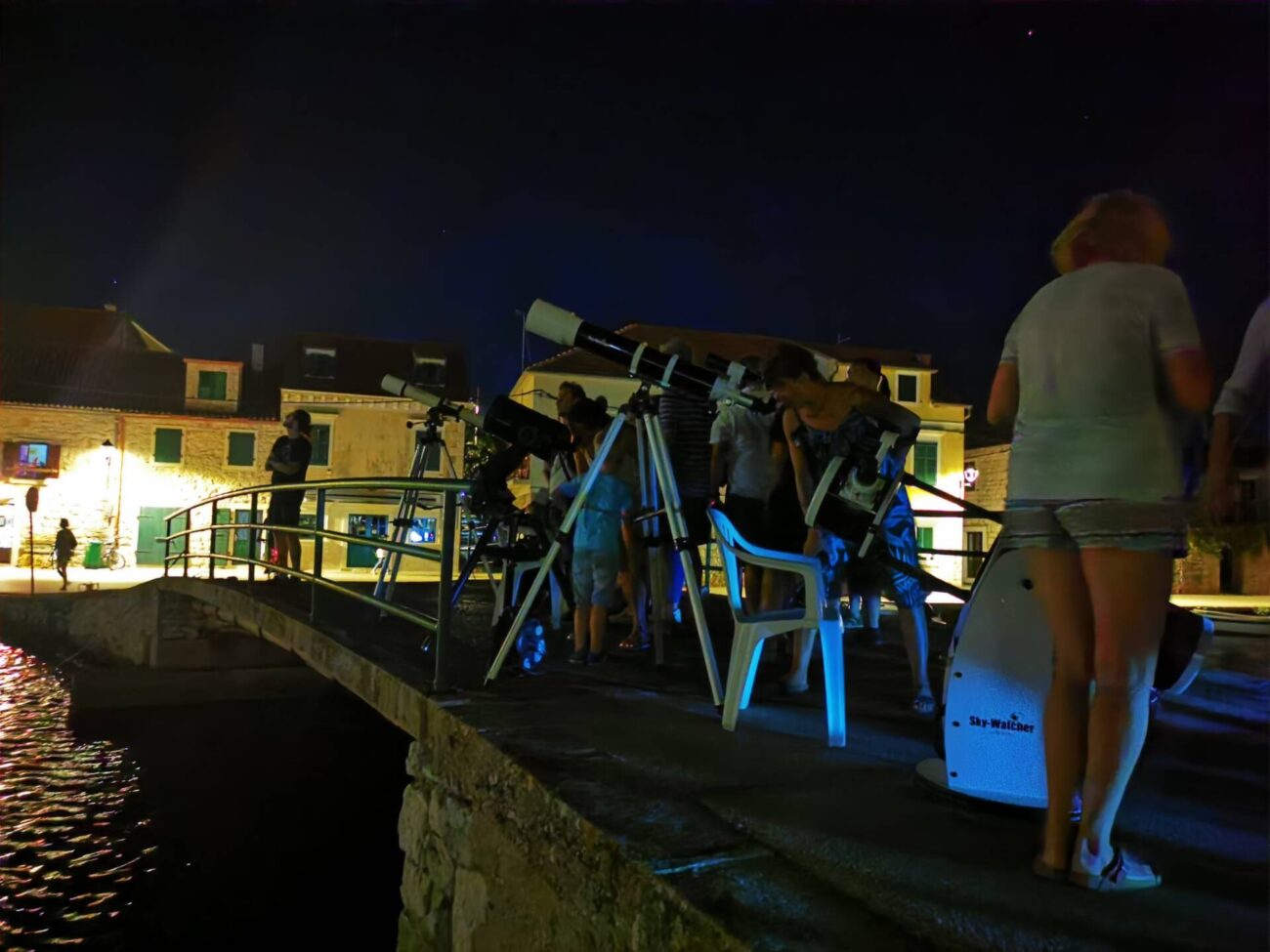
Participants of the Astronomy Days in Jelsa (Credit: Jelsa Tourist Board)
Jelsa was the first to develop astrotourism
Secretary-General of the Croatian Astronomical Union Dorian Božičević in Jelsa serviced the cameras of the Croatian Meteor Network located in the Eco-ethno village Humac and continued with measurements of light pollution in the Municipality of Jelsa, which is soon preparing to submit an application to the International Night Sky Association (IDA) for obtaining the status of the International Dark Sky Community, reported from the Croatian Astronomical Union, announcing that they expect to receive the status by the end of the year.
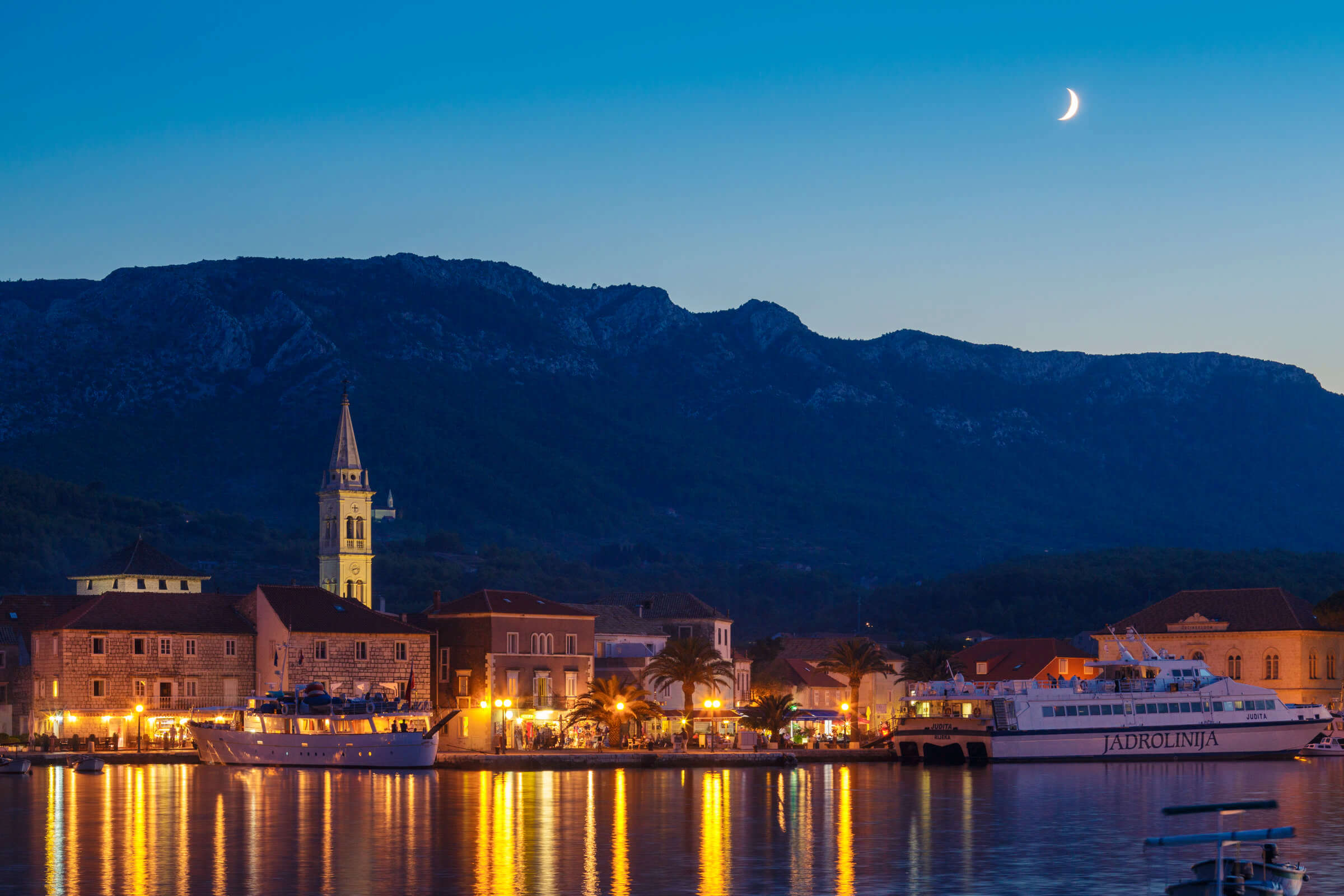
The town of Jelsa at night (Credit: Mario Romulić)
In addition to the sun and the sea, Jelsa will also offer tourists a starry sky, and the stars in modern times are disappearing precisely because of light pollution, and observing the starry sky is becoming a tourist attraction that you cannot often see.
What is the International Dark Sky Community?
Unlike the park, the dark sky community is a village, town, municipality, and other legally recognized communities that have shown exceptional commitment to preserving the dark sky through the implementation of quality outdoor lighting and raising awareness of light pollution. Namely, in 2001, the International Organization of the Dark Sky launched the "International Dark Sky Locations" program. The program recognizes and aims to protect areas around the world with preserved and natural dark skies, ie without or with a minimum amount of light pollution.
Jelsa is a slice of safe, authentic lifestyle heaven on Croatia’s premier island, with wine and beach treasures galore. Everything you need to know about Jelsa, you'll find it in our Total Croatia's Jelsa on a Page HERE.
Follow the latest travel updates and COVID-19 news from Croatia HERE.
For more on travel in Croatia, follow TCN's dedicated page.
Jelsa Art Biennale 2021: Installation Of Plastic Bags in Hotel Jadran
June 14th, 2021 - As part of the Jelsa Art Biennale 2021, a world-famous art collective from Madrid, Luzinterruptus, is coming to Hvar to put into place a monumental light installation of plastic in July bags on the façade of the abandoned Hotel Jadran in Jelsa.
As reported by Jutarnji, a campaign is being launched as part of the project to collect the plastic bags needed to produce the installation. In the next month, until the installation is fully set up, it will be necessary to collect 3,500 plastic bags.
The student initiatives of the island of Hvar are participating in the action, and all those interested can help by emptying the plastic bags from their pantries and replacing them with canvas ones. For each participant who collects a minimum of 50 bags, the organisers will deliver one canvas bag to their home address, and those who collect more than a hundred will receive a T-shirt. Upon the completion of the event, the bags from the bag installation will be disposed of properly.
Plastic bags of a newer design made of thick polyethylene take as many as 20 years to fully decompose, those of the older composition take about 1000 years to break down, and plastic bottles last for up to 500 years, with the inevitable trace of petrochemical chemicals, which aren't biodegradable.
Luzinterruptus is an art collective from Madrid, which conducts interventions in public spaces to comment on or criticise some of the world's current burning topics. Many of their interventions have been performed in a guerrilla manner, but with a concise duration. Due to the provocativeness of their work, they operate under a collective/anonymous identity.
The collective has implemented interventions worldwide in prominent locations in public spaces such as Trafalgar Square in London or Plaza Vaticano in Buenos Aires.
Be part of something bigger, get rid of the plastic bags from your pantry and receive a canvas one and a t-shirt in return for saving our stunning beaches and the rest of the planet.
For more, follow our lifestyle section.
Za Krizen 2021 Tonight on Hvar: Live Streaming from Jelsa
April 1, 2021 - 500 years of tradition will continue on Hvar tonight, as the UNESCO Za Krizen 2021 procession in 6 villages will take place, albeit in a much-reduced capacity. Where to watch it live from Jelsa.
It is the most magical night of the year in Jelsa.
And last year, it was definitely the most surreal night of my 15 years in Jelsa, as I was the only person on the main square as the Za Krizen (Behind the Cross) procession, which has been inscribed as intangible UNESCO heritage since 2009, took place once more against a backdrop of huge national controversy. From memory, it was the only public event which took place in Croatia in the whole of April, 2020, due to the lockdown, requiring the intervention of both the Prime Minister and Health Minister (a Jelsa native) to allow it to proceed in much reduced circustances.
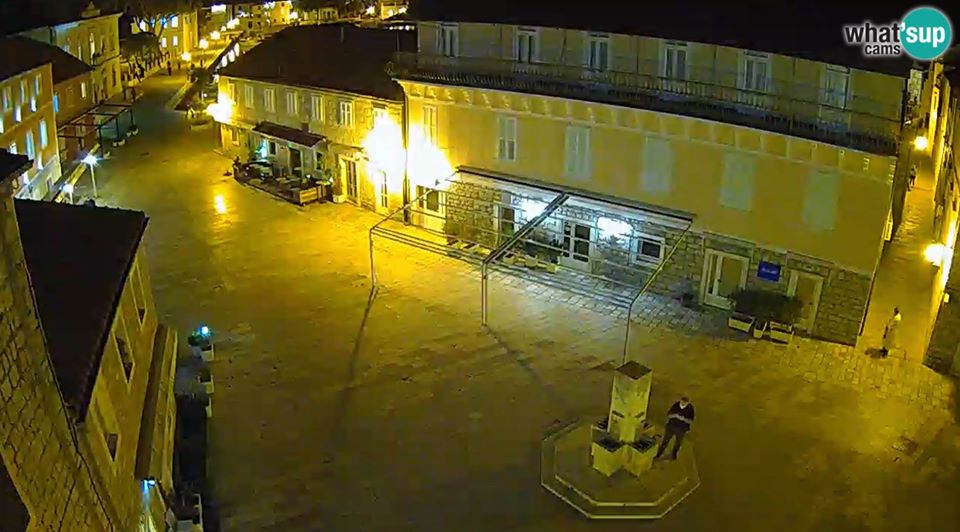
Where normally there are thousands of pilgrims joining the six overnight processions in Jelsa, Pitve, Vrisnik, Svirce, Vrbanj and Vrboska, as you can see from the webcam above, there was just one fat Irishman as the procession started. Due to the lockdown, no other media could come to the island, and TCN was just one of two media who happened to be living in Jelsa and so able to attend.
Due to my privileged position, and knowing how important the precession is to the soul of each Jelsa native, I stayed up through the night and filmed all six, culminating in the Jelsa procession returning to the main square about 06:15 the next morning. My wife Miranda did an excellent job editing the video above.
There was understandable opposition to the procession all over Croatia. Everything else had been banned in the country, and yet this procession was allowed to go ahead. There was some selective photography in the media the following day, trying to prove mass violations of the measures in place at the time. Given my unique perspective on the night, as well as the outstanding work of the Hvar police, the actual situation could not have been further from the truth. It was a pleasure to be able to put the record straight in Jelsa Za Krizen, Croatia Not Wuhan & Cabin Fever Perspectives. A chance to give something back to that lovely little town which gave me so much in my 13 years there.
The six processions will start simultaneously at 22:00, as they have done for centuries. The Jelsa cross-bearer, Dario Belic, will be carrying the cross for the second time, which has only happened a few times in the 500 years of the procession's history. It is considered a high honour to carry the cross on the 22km pilgrimage, and the local custom is to sign up a child at birth to carry the cross. The names of future cross bearers have been allocated up to 2051. Dario was put down for 2021 way back in 1986. However, his first experience carrying the cross came 20 years ago after the untimely death of a relative who was supposed to carry that year. Dario stepped in back then, but tonight is about fulfilling the commitment made at birth.
And, as last year, while numbers will be severely restricted, you will be able to follow events live in Jelsa, both from the church and the main square. Last year, there were more than 10,000 people all over the world tuning in. I was struck by the passion of Croatians all over the world last year, as I posted live video footage through the night as each procession entered Jelsa. An experience I had almost to myself all night, and one I will never forget.
You can find the two live webcams on the Zupa Jelsa website.
What's it like to carry the cross? A few years ago, Hvar TV did this fabulous feature story behind the scenes with a cross-bearer from Pitve. Highly recommended, and with English subtitles.
You can learn more about the island in our Hvar in a Page guide.
Americans in Croatia: From Short Hvar Stay to Digital Nomad Visa Success
March 7, 2021 - Americans in Croatia are very welcome guests, and many would come for long if it was possible. It is now, if you are a remote worker. Meet Jessica Romano from San Francisco, officially the first approved digital nomad on Hvar. Congrats and welcome!
"As you probably know, Paul, Americans in Croatia can only stay for a limited time. We LOVE Jelsa, and your apartment is really great, and we would rent it through the winter if we could stay. I read on TCN about this digital nomad visa? Is it coming soon? Do you think I could get one?"
Americans in Croatia - from a temporary stay in Jelsa to a 12-month permit.
That was back in early November when Jess and Thibaud rented our Panorama Penthouse Jelsa apartment for a couple of months. Some nice and unexpected income so late in the year. And there would be more rental income out of season if they were allowed to stay longer. Currently, Americans in Croatia can only stay 90 days at one time.
So there we were, in a situation where we both wanted to engage with Croatian bureaucracy (my favourite hobby) to get a result for Jess. She and Thibaud are amazingly thoughtful and respectful guests, even baking cookies for my punica, which makes me a little bit cooler in my punica's eyes by association.
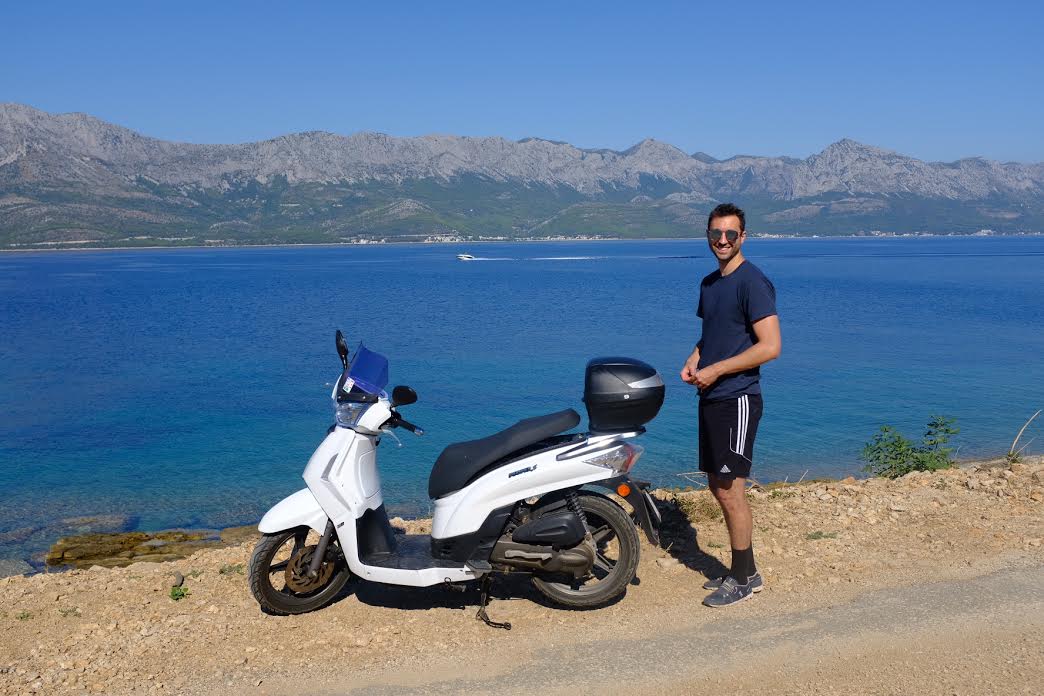
I helped where I could, as did several others. It seems that Jess and Thibaud have been a hit in the Jelsa community, helping several people, as well as bringing a little colour and fresh perspective to the long Dalmatian winter.
And yesterday, some great news, as Jess informed me that she heard back from the authorities at MUP and has been approved for a 12-month stay.
Great news and congrats. Jess kindly took the time to tell me more about, winter in Jelsa, and what the visa means for her.
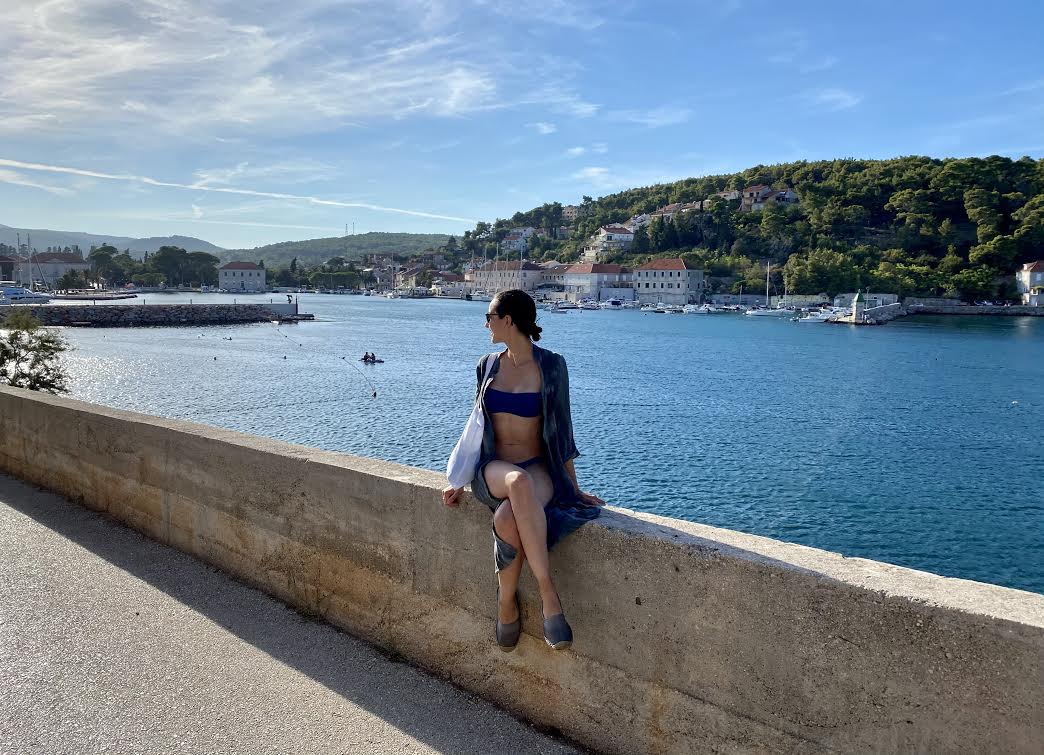
Firstly, how are you enjoying winter on Hvar? Has the reality been a little different to what you were expecting? In what way?
I’ve been enjoying it - Hvar is beautiful year-round! I didn’t have many expectations heading into the season, especially as Covid-19 dragged on into 2021. Due to pandemic restrictions, most restaurants and cafes were closed, and people haven’t been out very much. Since this is my first winter season on the island, I don’t have a point of comparison; generally, the slow pace and absence of crowds has been great. The weather and temperature has been mostly mild, but I was surprised by 1-2 week-long rainy stints. We are familiar with jugo and bura by now. I told friends here that I’ve felt quite tired during jugo, and they said that I’m officially a local now. Alas, those cloudy periods make the sunny days even more wonderful. It can get quite warm when the sun is out - if you haven’t looked at the calendar, you might think it’s summer at times! I’ve spent a lot of time outdoors - hiking, walking, rock climbing & running - and recently bought a car to explore the island. I feel as though you could live on Hvar for years and not discover all of the unique villages, ruins, beaches and trails here. Even though most wineries are closed in the winter, some offer tastings by appointment, and I’ve stopped by local producers to pick up bottles to enjoy at home.
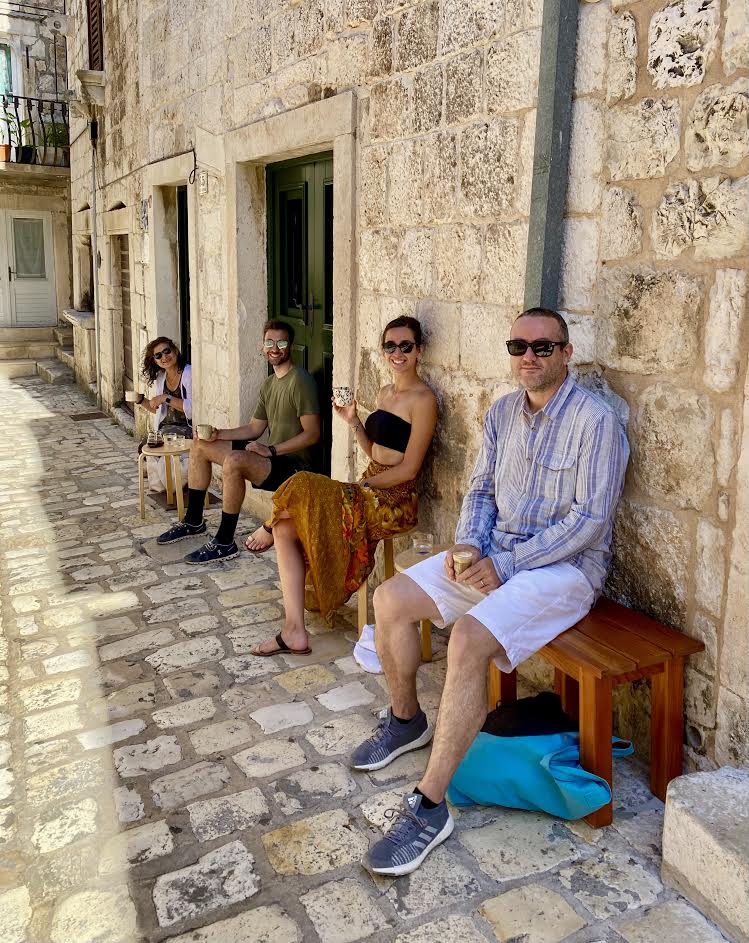
You recently became a TV celebrity - tell us about that experience. You did a great job promoting the digital nomad lifestyle to a domestic audience. I think a lot more people here now understand it better.
Who thought we’d ever be on Croatian TV?! Wow, what a fun experience. We were delighted when the Puls team reached out to feature us in their digital nomad series, and were especially excited to share our positive experiences in Croatia. We shot the film over a few days - at our apartment, in Jelsa & Hvar town, and near Zavala. Filming the reportage is a lovely memory for us, as was spending time with the producers, Maja and Jura. They are a joy to work with and made us feel very comfortable in front of the camera. The reportage captured moments of our everyday life. It also showed that digital nomads can benefit from living in Croatia and that likewise, Croatia can benefit from digital nomads integrating into the community. We are so grateful to the people of Hvar (and Croatia, as a country) for embracing us.
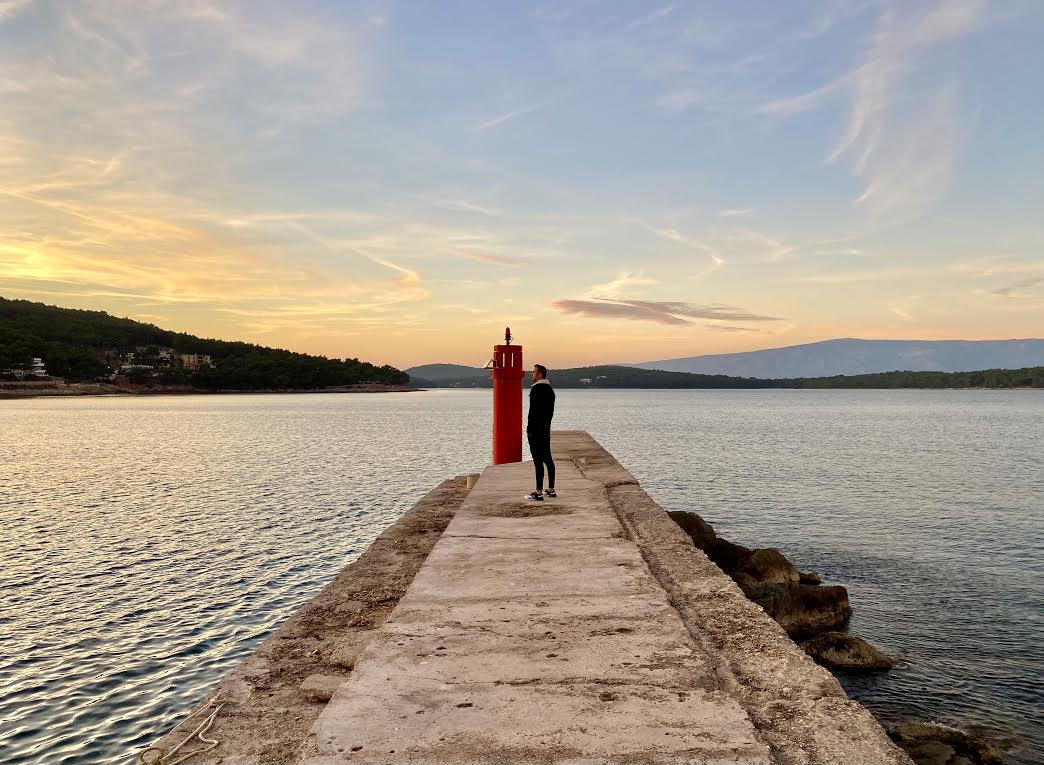
An American on Hvar. That can only happen for a finite length of time, normally, but you had good news come recently - your application for the digital nomad visa has been approved. Congrats! Tell us more.
Puno hvala! It’s exciting to be one of the first people to receive approval for Croatia’s new digital nomad visa. It is rather incredible that Croatia created and approved the digital nomad visa in such a short period of time.
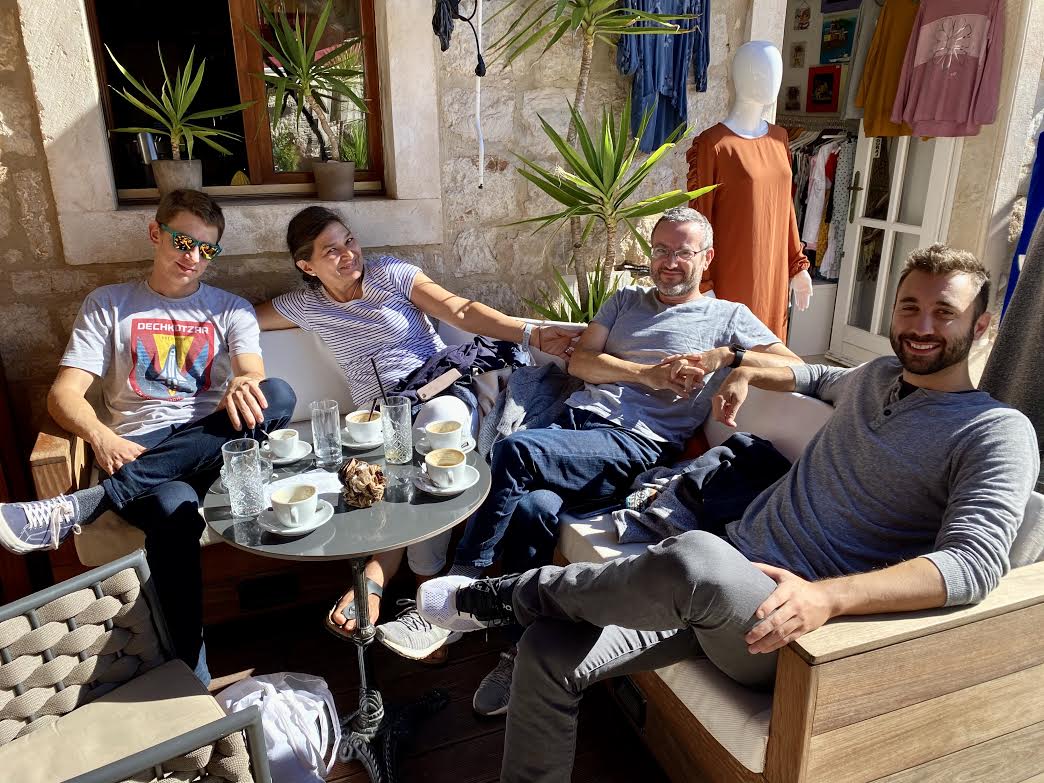
Tell us about the process and what you needed exactly?
Since I had already obtained a temporary residence permit and some of the requirements overlap, the change was relatively simple. I applied shortly after the visa was announced in January and submitted my paperwork through the Hvar police station. Shout out to Ivana for helping us through the process! The digital nomad visa is new for everyone, the MUP and applicants alike, so it felt like we were all learning together. I provided proof of employment (on official company letterhead), proof of health insurance (foreign and travel), proof of income (pay stubs), the completed application form, a copy of my passport and a small photo for the ID. I paid a fee - if I recall correctly, it was 600kn plus 70kn in stamps. I signed a document to request the revocation of my temporary residence permit in order to apply for the new visa. The MUP provided me with a document stating that I was legally in Croatia while ‘between’ visas. The whole process took 4-6 weeks. Big thanks to all of our friends and acquaintances who advised me through the process, including you(!) and Jan de Jong.
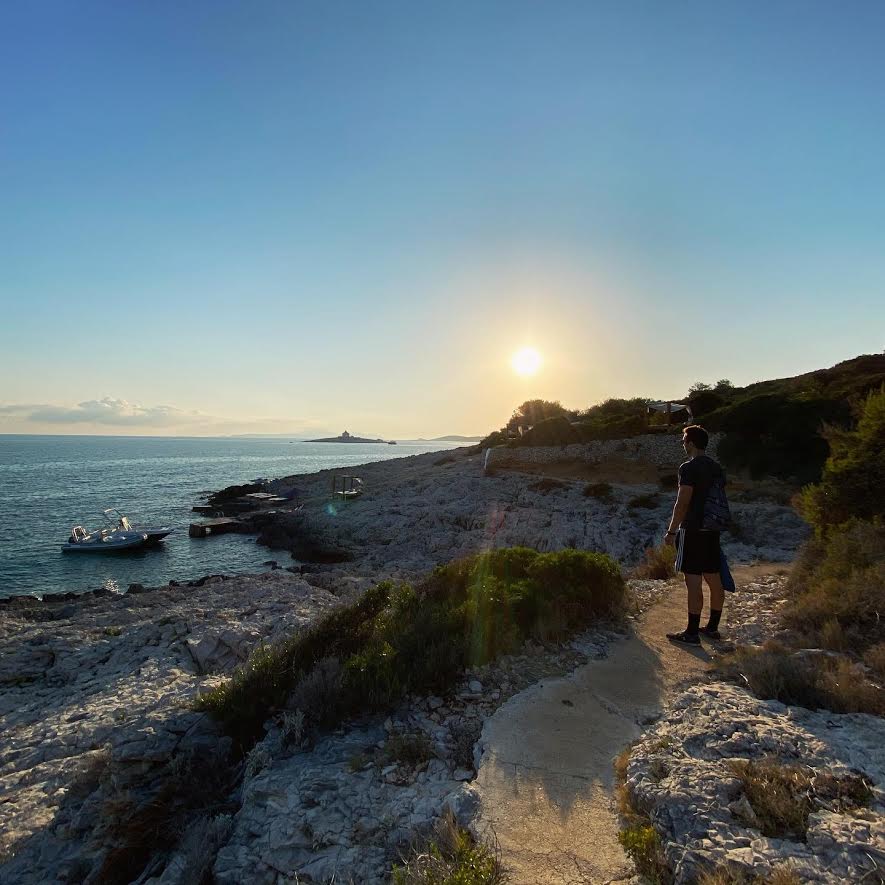
What exactly does it mean for you and your lifestyle to now be able to stay in Croatia for 12 months?
Being able to stay in Croatia for an extended period of time means two big things for me. Firstly, I have more options on the table regarding where I want to live and work. Secondly, it actually provides some stability as we all enter a post-pandemic world. Like many people, my life shifted in 2020 - there were circumstances I couldn’t control but there were choices I could control. One of those choices was to relocate to Europe. My original intent was to stay for a few months and then travel around the continent but I wanted to stay in Croatia. After my tourist visa expired after 90 days, I applied for and was granted a temporary residence permit. The digital nomad visa provides a longer-term solution for staying in Croatia and removes the stress and uncertainty of having to re-apply for extended temporary residence. Now I don’t have to worry about leaving Croatia for a year and can focus on my life and work here. Something I didn’t fully realize before landing in Croatia is that it takes several months to settle into a new place. Getting comfortable with the environment, people, way of life - it all takes time. Having the option to stay for a year gives me the opportunity to more deeply explore the culture and what it would be like to live in Croatia long-term. I wouldn’t be surprised if other digital nomads choose to lay down roots in Croatia - either through starting businesses, buying property or becoming part of the community - because they have the chance to spend sufficient time here before making those decisions.
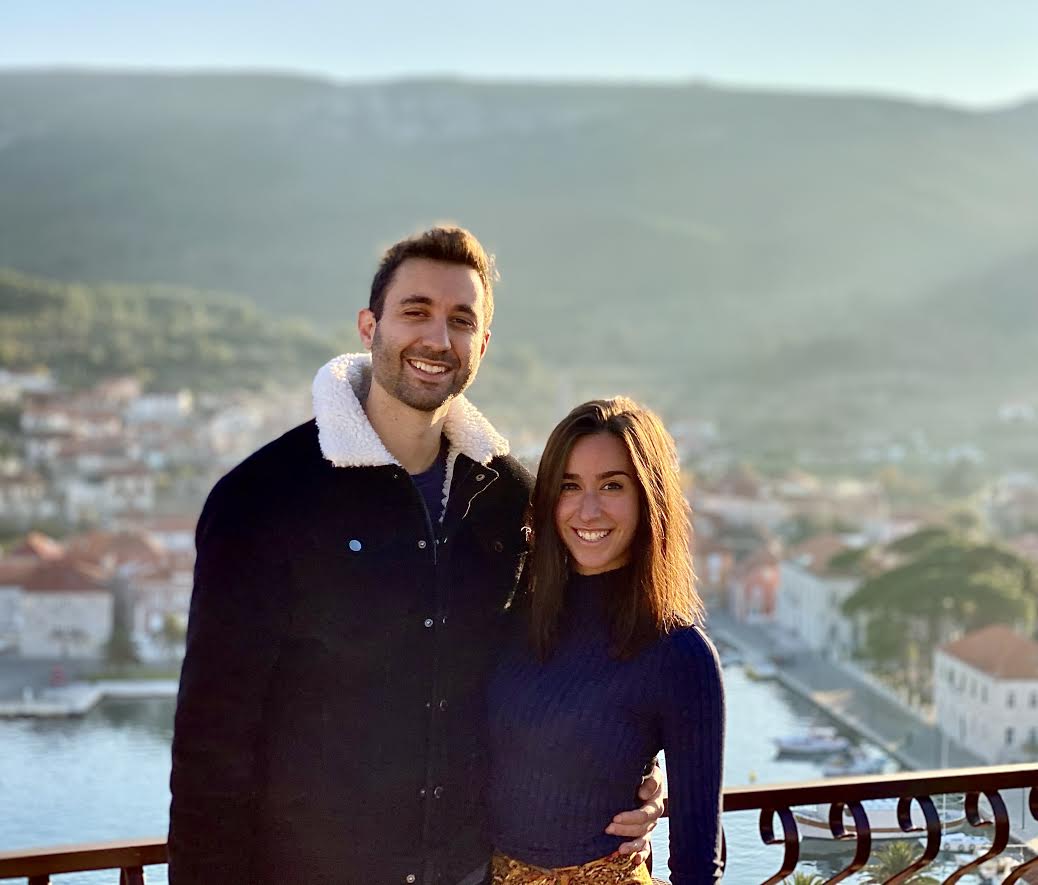
What message do you have for fellow international remote workers about life in Croatia off-season. What are the pros and cons?
Croatia is an excellent option for digital nomads all year-round. It’s worth noting that my perspective is based on spending the majority of my time on Hvar - which is a place that I’ve grown to love and can recommend highly! But from what I know, there are many awesome destinations within the country, and there’s somewhere for everyone. Big cities, tiny villages, and everything in between - as well as over 1000 islands (though not all of them are inhabitable). The landscape varies vastly across the country, from mountains to farmland to (a very long) coastline. I was slightly concerned about being able to find a high-speed internet connection, but it’s not been a problem. Most Croatians I’ve met are willing to speak English, so there is no language barrier in terms of being able to get around and communicate generally. Every location has its perks and quirks - as long as you are determined and have an open mind, you’ll be able to make it work. There’s heightened energy and tangible efforts around making Croatia a premier destination for digital nomads, making it a great place to be right now.
Here is the great feature on Jess and Thibaud which aired on Croatian primetime TV on HRT Puls.
If you want to learn more about their story, they gave a great interview on TCN back in December, when the digital nomad opportunity was still not officially in place. Read Digital Nomad Life in Croatia: Jess and Thibaud, from San Francisco to Jelsa.
That means that there are now at least two Americans in Croatia with the digital nomad visa. Meet the first-ever recipient of the visa - Meet Melissa Paul, Owner of Croatia's First Digital Nomad Visa.
Are you a digital nomad who would like to spend 4 weeks as a guest of the City of Dubrovnik? Learn more in Dubrovnik Launches World's First Digital Nomad-in-Residence Competition.
For the latest news and features about digital nomads in Croatia, follow the dedicated TCN section.
How many Americans in Croatia are there? We are looking to do a series on Americans in Croatia, so if you are here and would like to be featured, please contact This email address is being protected from spambots. You need JavaScript enabled to view it. Subject Americans in Croatia.
Croatian TV Showcases the American Digital Nomad Hvar Lifestyle in Jelsa
February 26, 2021 - What happens when you blend American digital nomads with the Hvar lifestyle? As HRT Plus reported last night, it is something close to heaven.
It is rather a strange feeling watching your home on national television with someone else living in it, but what a lovely report from Maja Zrnic for HRT Puls which went out on primetime television last night.
With all this talk of digital nomads, what is the reality like, and how is the Hvar lifestyle for digital nomads from the USA in Jelsa during winter, for example.
A few weeks ago, we published a really great interview with Jess and Thibaud, who have been in Jelsa for a few months and are in the process of applying for the digital nomad visa. You can read the interview in Digital Nomad Life in Croatia: Jess and Thibaud, from San Francisco to Jelsa.
Soon after, Maja contacted me and said that was interested in doing a TV story on the couple. Introductions were made, new friendships forged, and Maja captured the Hvar lifestyle through foreign eyes in this ten-minuted feature, which aired last night. It is almost all in English with Croatian subtitles.
And yes, I did feel a little homesick, not only for the Panorama Penthouse Jelsa apartment that was our home before we moved to Varazdin. But also a little nostalgic for those magical winter months on Hvar.
Maja did a really great job bringing out the Hvar lifestyle in the piece, and it offers a glimpse of how community life can slowly be enriched with the arrival of international digital nomads, who work through their laptops by day (or, in some cases due to time zones, by night) while fully integrating with the local community once work is finished.
Read more about digital nomad life on Hvar in Hvar Digital Nomad Life with Kids: an Emerging Lifestyle.
For more news on digital nomad topics in Croatia, follow the dedicated TCN section.
Learning Croatian: the Dialect Words of Hvar Wine (VIDEO)
January 10, 2021 - Continuing our alternative look at the Croatian language through Hvar dialects, some essential vocabulary relating to Hvar wine.
One of my favourite features over the last ten years writing about Croatia is a language series we started soon after the launch of Total Hvar way back in 2010.
Sitting in The Office in Jelsa one quiet November lunchtime, I decided to film my friend with some typical Dalmatian greetings.
The unique phenomenon that is the Dalmatian Grunt hit the Internet and a new online start was born. The linguistic colossus that is Professor Frank John Dubokovich, Guardian of the Hvar Dialects, quickly amassed 50,000 views on YouTube, and a fascinating series of lectures followed, until they were inexplicably removed from YouTube a few years ago.
Thankfully, I came across some of the offline originals recently and have been publishing them again.
Today's lesson focuses on the dialect words for Hvar wine. In some ways, it is a landmark lesson, since it was the first to be independently commissioned by someone else.
The Professor's fame had spread so far that national television came calling, and they requested that we record an exclusive lesson for them about Hvar wine for a forthcoming primetime feature on tourism in Jelsa.
The Professor was eager to please and was eager to expand his ever-expanding flock. We thought that the best place to record was at Artichoke Wine Bar and Restaurant in Jelsa, which became the first place the island to offer Hvar wine by the glass soon after it opened several years ago.
You can check out the Professor's latest foray into the world of Hvar wine above, as well as checking out the entire feature on Jelsa, the only time in my life I have ever been recorded eating blitva.
You can catch up with The Professor's teachings on our TCN Talks YouTube channel.
For more news from Hvar, check out the dedicated TCN section.
Astro Tourism on Hvar: Jelsa To Be First Dark Sky Community in Croatia
December 27, 2020 – In an effort to develop astro tourism on Hvar, a meteor camera and meteorological station were set up in the abandoned settlement of Humac near Jelsa. Jelsa will thus become the first internationally recognized Dark Sky Community in Croatia.
As Turističke priče reports, the Municipality of Jelsa, the Tourist Board of Jelsa, and the Croatian Astronomical Society participate in creating an astro-tourist offer on the island of Hvar.
Meteor camera recorded 125 meteors in the first night
The first activity, public observation with a telescope, was carried out in August. Later, a small school of astronomy was organized for primary school students.
Now the Croatian meteor camera (i.e., the Global Meteorological Network) and the meteorological station on Humac have been completed. The work was quite demanding because first, a pole, solar power supply, and mobile internet had to be installed, then a meteor camera and meteorological station.
The meteor camera recorded 125 meteors on the first night of filming, of which 72 belonged to seven known meteor swarms. The most numerous were meteors from the radiant in Coma Berenices, 12 in total.
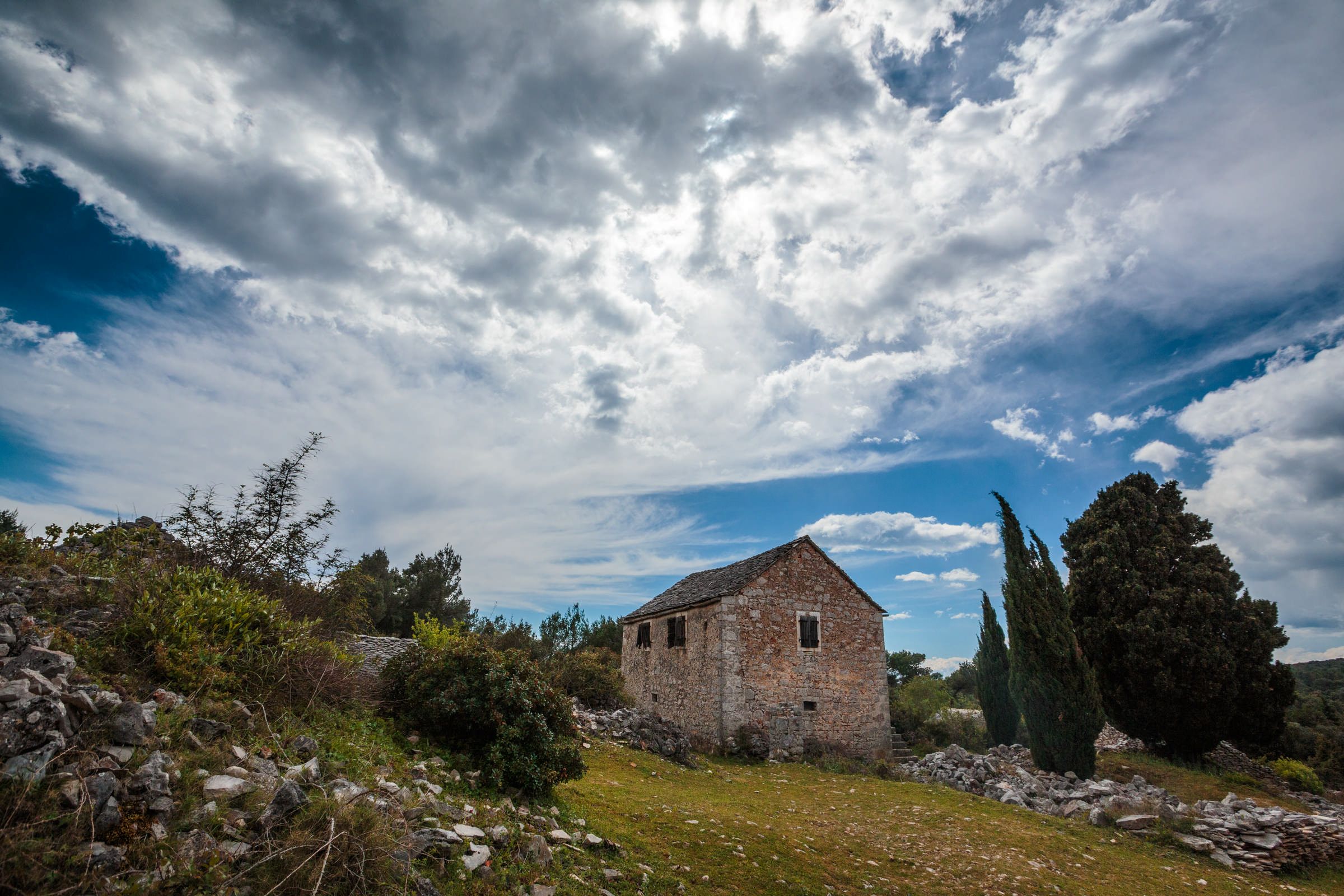
Humac is a former pastoral settlement, founded in the 17th century, located 7 km away from Jelsa, at 350 m above sea level / Photo: Romulić and Stojčić
The meteor camera in Humac can be followed on the pages of the Global Meteor Network, and the meteorological station on the Weather Underground and Weather Cloud services.
Activities are also aimed at declaring the Municipality of Jelsa the first international Dark Sky Community in Croatia and the area of Humac an International Dark Sky Park.
What is Dark Sky Park, and what Dark Sky Community?
The Dark Sky Park label is awarded to protected nature areas with extremely dark skies full of stars. According to the International Dark-Sky Association, an American non-profit organization, parks are spaces protected for natural conservation that implement good outdoor lighting and provide dark sky programs for visitors. The parks also run programs to popularize astronomy, educate the public on light pollution, and actively promote and preserve the night sky for current and future generations.
In Croatia, the first International Dark Sky Park is the one on Petrova Gora. Unfortunately, its future is questionable due to the light pollution caused by the tower with intense lighting, set up at the same location. At the end of last year, Vrani Kamen on Papuk was declared a second International Dark Sky Park. It is expected that the area of Humac near Jelsa on Hvar will be the third Dark Sky Park in Croatia.
Unlike the park, the Dark Sky Community represents a village, town, or municipality that has shown exceptional dedication to preserving the night sky by implementation and enforcement of a quality outdoor lighting ordinance, dark sky education, and citizen support of dark skies. Communities excel in promoting responsible lighting and dark sky stewardship and set good examples for surrounding communities.
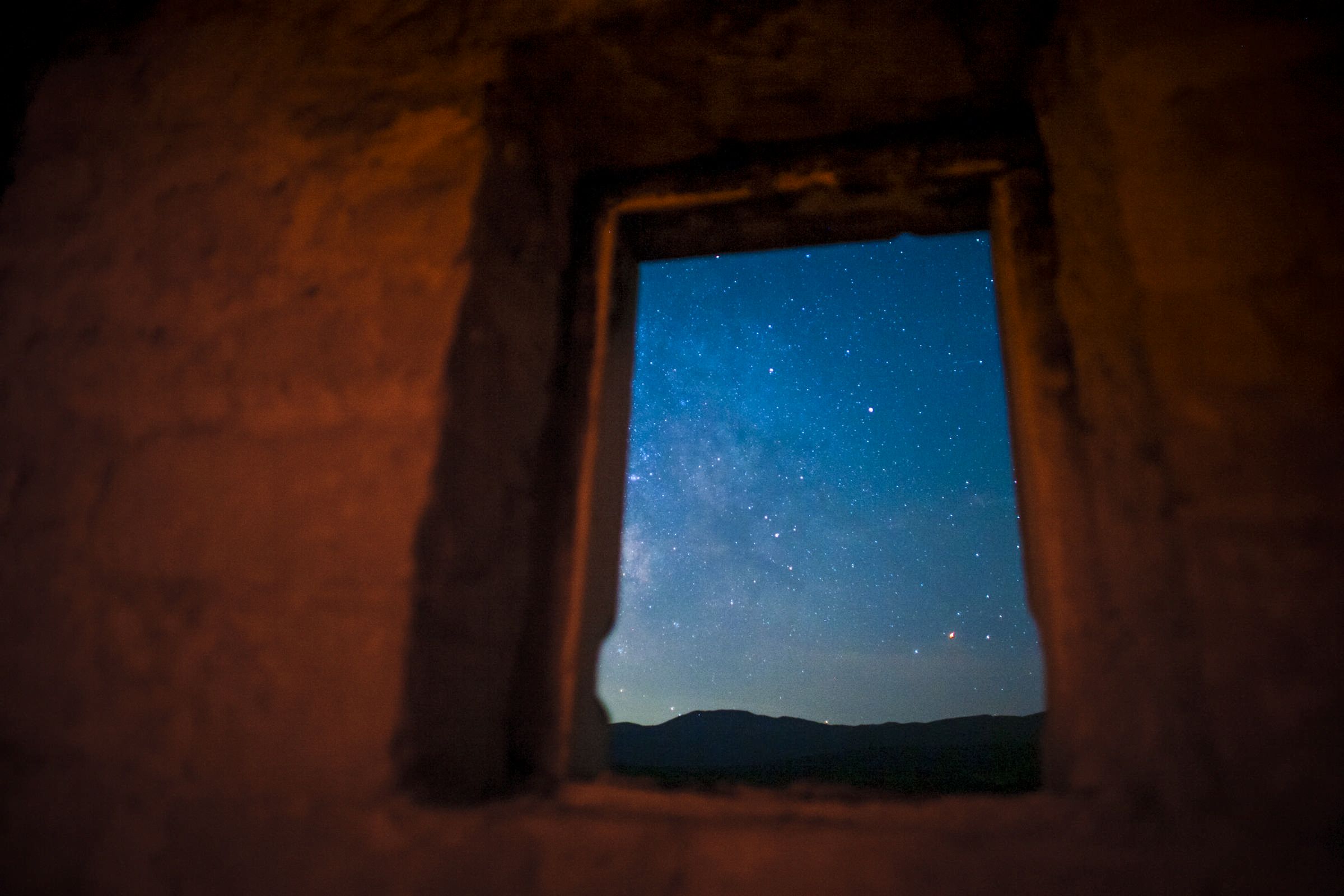
Dark starry Croatian sky / Photo: Romulić and Stojčić
Dark Sky Park as a tourist product?
Astro tourism is not yet developed, but it is one of the fastest-growing branches of tourism.
As HRturizam reports, although it is currently a small global community, dark sky tourism is growing and will only have rapid growth due to the coronavirus pandemic. Lonely Planet, CNN, and many others included dark sky tourism in the upcoming trends back in 2019.
Both Dark Sky Park in Humac and Dark Sky Community in Jelsa are of excellent quality and different tourist products. It is yet to be seen how this story is developed, presented, and sold.
For the latest travel info, bookmark our main travel info article, which is updated daily.
Read the Croatian Travel Update in your language - now available in 24 languages.
Digital Nomad Life in Croatia: Jess and Thibaud, from San Francisco to Jelsa
December 21, 2020- As the number of digital nomads rises globally, some are choosing to spend some of their time in Croatia. Continuing our TCN series meeting international digital nomads calling Croatia their temporary home. Meet Jess and Thibaud, from San Francisco to Jelsa on Hvar.
It has been a very strange year for tourism, but not all of it has been bad news.
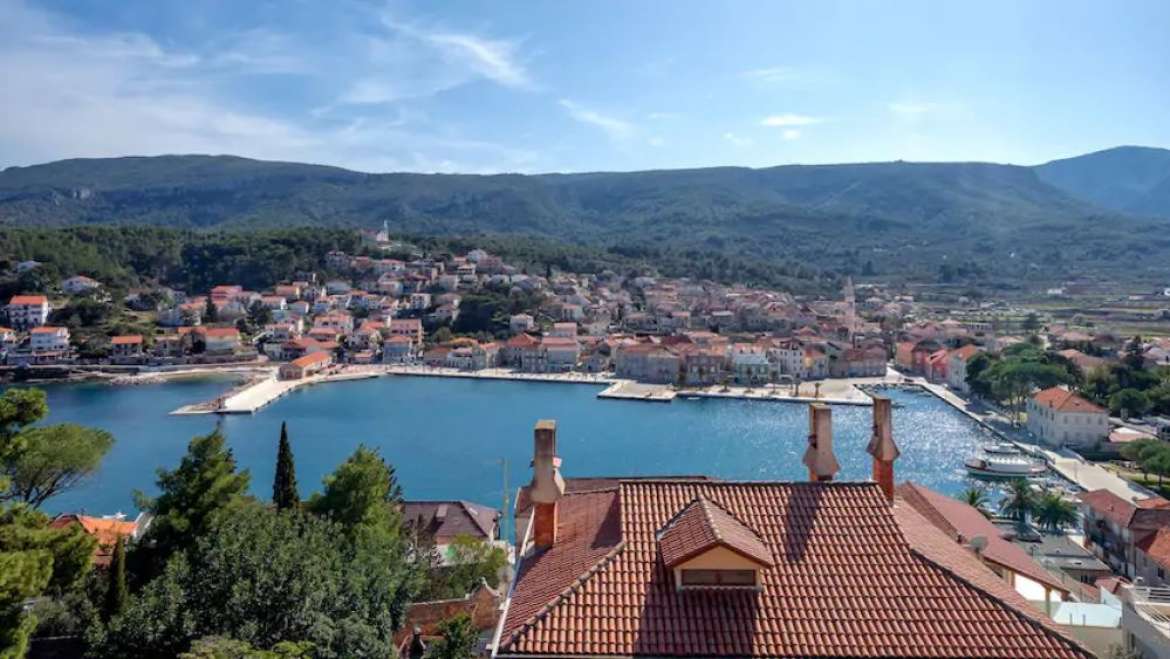
Renting our AirBnB apartment, Panorama Penthouse Jelsa, for example. Who would have imagined this time last year that the apartment would be empty for large parts of the early summer, but then booked solid for the winter months when it is normally empty? And by not one, but two digital nomad couples...
Meet Jess and Thibaud, the latest digital nomads in our series meeting remote workers choosing Croatia. What does San Francisco have that you couldn't possibly find in Jelsa anyway?
Tell us a bit about you and your work.
Thibaud grew up in Paris and has spent most of his life in Northern California. I’m from New York, which is where I lived until we moved to San Francisco a few years ago. We love to travel and spent five months backpacking in Asia in 2018. If I had to describe us in a sentence, I’d say we’re an adventurous pair that likes to live life to the fullest.
We work in the technology sector and have spent the majority of our careers at companies based in Silicon Valley. As a product manager, Thibaud designs and builds digital experiences for software platforms and tools. He sets the strategy and partners with engineering, design and business teams to make that happen. I work in business development, specializing in fintech. My job is to help companies grow and improve their market positions through client/supplier relationships and partnerships. Fun fact: we met at work!
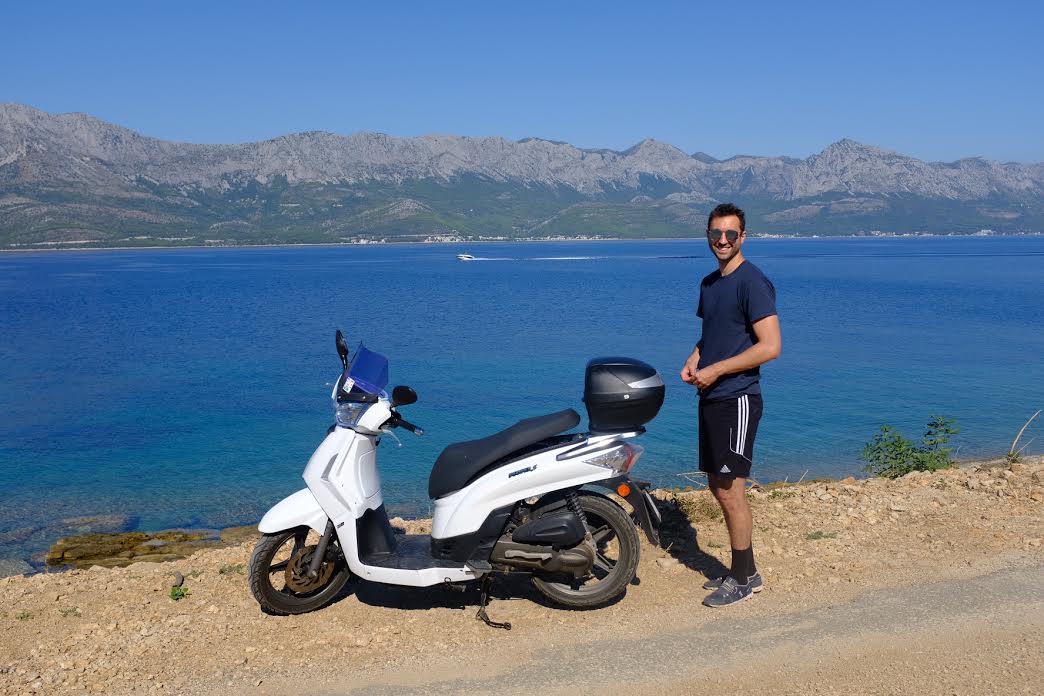
Pros and cons of working remotely?
Some of the more challenging aspects have been exacerbated by the pandemic - for example, the lack of social interaction. During normal times, people are able to meet with friends and family and go about their daily lives outside their homes, which balances the fact that they may not see their colleagues regularly. With the lockdowns, working from shared spaces or cafes isn’t an option, so it can be a bit isolating. Living and working in the place can lead to overworking, so it’s been important for us to set some of the boundaries that exist with non-remote work. Eating meals away from our laptops, keeping to a loose routine, and taking time for movement have been helpful ways to break up the day.
More effort is required to build and maintain relationships with colleagues when working remotely. Information can fall through the cracks without those impromptu desk-side chats in the office and that glass of wine with your teammate at the end of the workday. Remote work requires more mindfulness about how you interact with colleagues and clients.
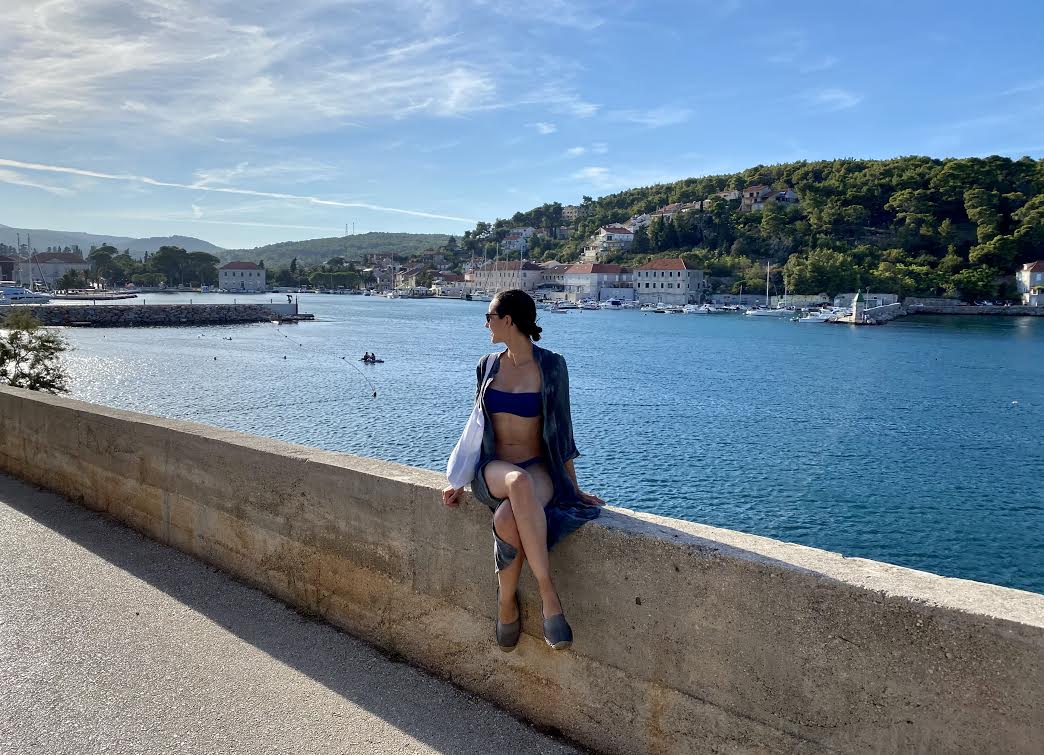
The overall flexibility that remote work enables is the biggest pro. Without it, the term ‘digital nomad’ wouldn’t be a thing! We feel fortunate that our roles can be done remotely, as opposed to many professions that require physical presence. Not being tied down to one location and being able to experience new places is one of the best things about working remotely. Not having to commute is great as it saves time and reduces your carbon footprint. Being able to prepare your own meals is a pro. Having the ability to choose your working setup is a pro, such as taking calls while on a walk or switching rooms to follow the sun. Having the option to wear whatever you’re most comfortable in everyday is also a nice perk.
Remote work also enables companies to hire the best talent regardless of where people live. Being able to build teams across borders can be positive for both employers and employees from an economic perspective and also help drive diversity of thought.
This isn’t an exhaustive list of the pros and cons, but highlights some of the aspects of working from home. For us, the benefits of remote work outweigh the challenges.
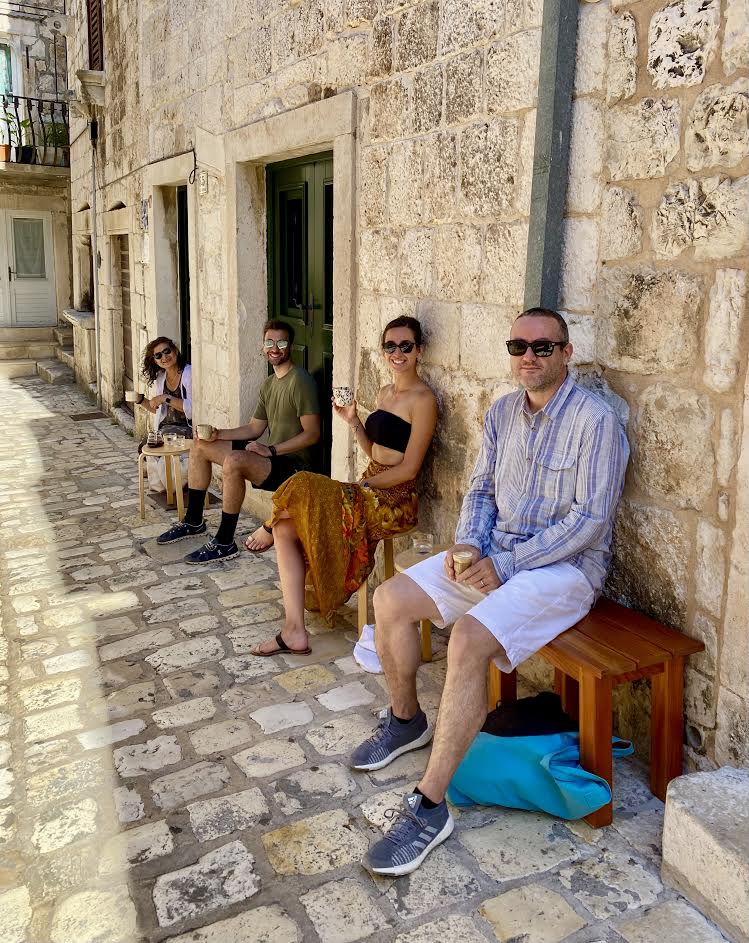
How did you choose Croatia and specifically Jelsa?
It was a major decision to travel, let alone temporarily relocate, during Covid-`19. After weighing the risks, we decided to take advantage of our new ability to work remotely. Prior to the pandemic, we had been able to work from home occasionally but not consistently. Many technology companies started to enable employees to work from home full-time in March and we knew that we would not need to return to our offices for several months. We fully embraced the uncertainty of 2020 - we closed our San Francisco lease in June, took a month-long road trip around the western United States, and then took a one-way ticket to Split.
We wanted to spend our time remotely working in Europe and Croatia was one of the few countries open to Americans in August. I had visited Dubrovnik, Hvar and Split a few years ago, so I had some familiarity with Croatia. We chose to avoid big cities, and decided that a smaller town on an island would be a good choice. We searched Hvar and Brač for accommodations and I was excited about this Airbnb in Jelsa, primarily because of the terrace and view. Jelsa turned out to be just the kind of destination we were looking for - quaint, walkable, and charming.
Our original plan was to stay about a month in Croatia and then travel to another European country. But within a few days of arriving, we extended our booking to two months. In October, we considered traveling elsewhere, but decided against it given the rising Covid-19 risk and changing border restrictions. Plus, we were happy in Jelsa and felt settled despite having been there for a short time. We’ve made some incredible friends here and feel a sense of community - for that, we are very grateful!
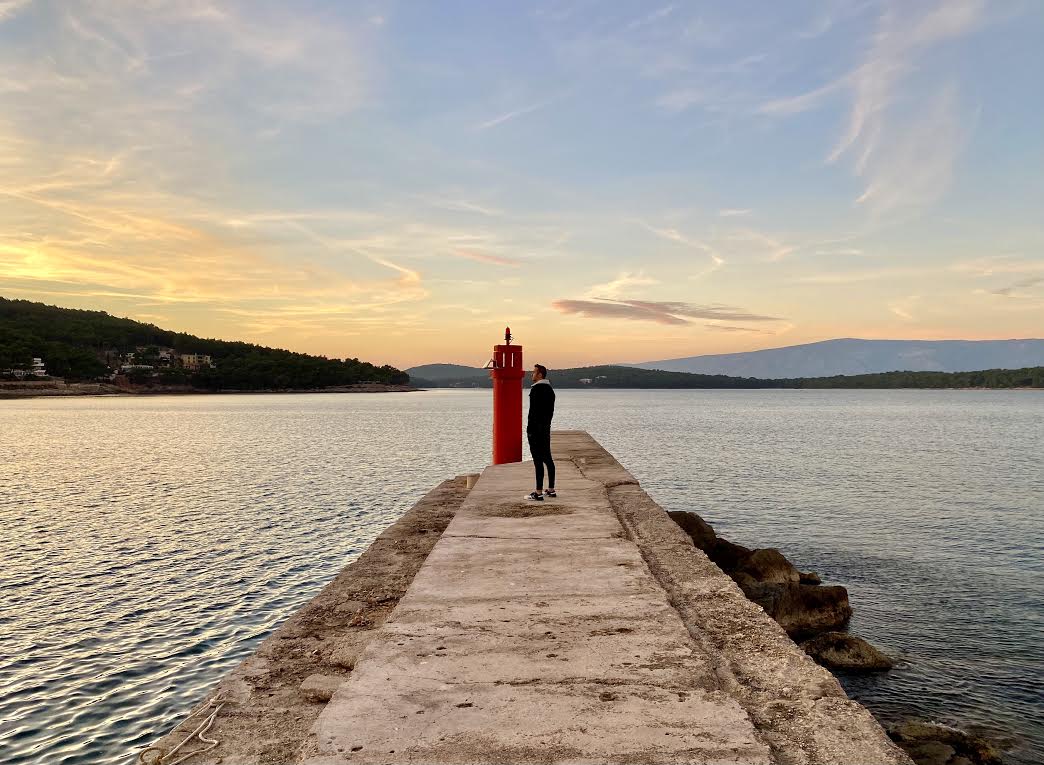
What’s important for a destination to offer to be compatible with a digital nomad lifestyle, apart from good WiFi?
This varies from person to person. We consider things that enable a good quality of life based on our priorities. Comfortable and affordable housing, ideally with a full kitchen and adequate desk space, is important. The beauty of the surroundings and access to nature is also a priority, at least for us. We’ve lived in busy cities, so one advantage of being a digital nomad is being able to live in serene and quieter places.
Being able to get around is important, so walkability is a plus. It’s also important to be able to find high quality food and have grocery stores nearby. Access to basic healthcare is also a consideration. Athletic facilities, such as a gym or soccer fields, are also pluses.
It’s easier to meet people and go about everyday life in places where English is spoken widely. Being able to connect with people is really important, so the presence of expat communities can be helpful, as well as the openness of the culture. We’ve had an extremely positive experience with Croatians in general - our friends and acquaintances have been so welcoming, friendly and willing to help us out with just about anything.
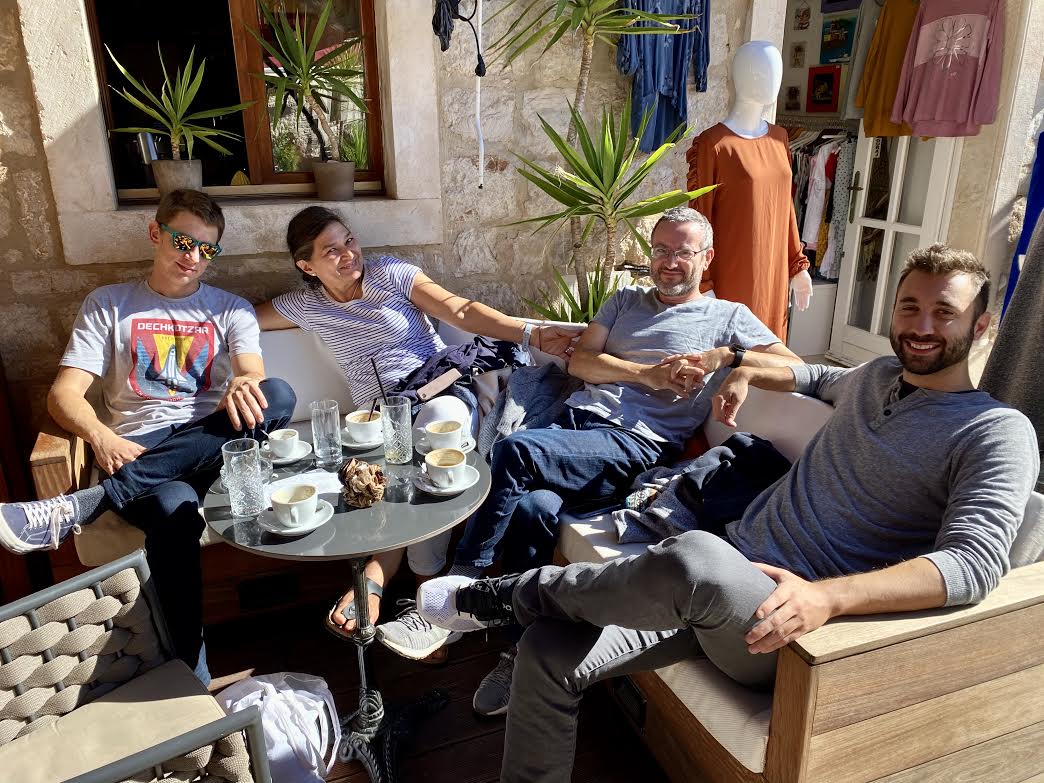
What’s your view on the future of remote work?
Remote and flexible work arrangements have been trending for the past decade or so, and Covid-19 has certainly expedited that trend. Many people have been encouraged to stay at home and non-remote companies have had to adapt quickly. As a result, I think it’s been eye-opening for workers and companies to see that, in fact, remote work can be productive and even beneficial for morale and results. Covid-19 is likely a forcing function for companies, as well as for individuals, to re-evaluate their work arrangements. Fully remote models may not work for everyone or every company, but I do think that flexible work arrangements will become the norm in some industries.
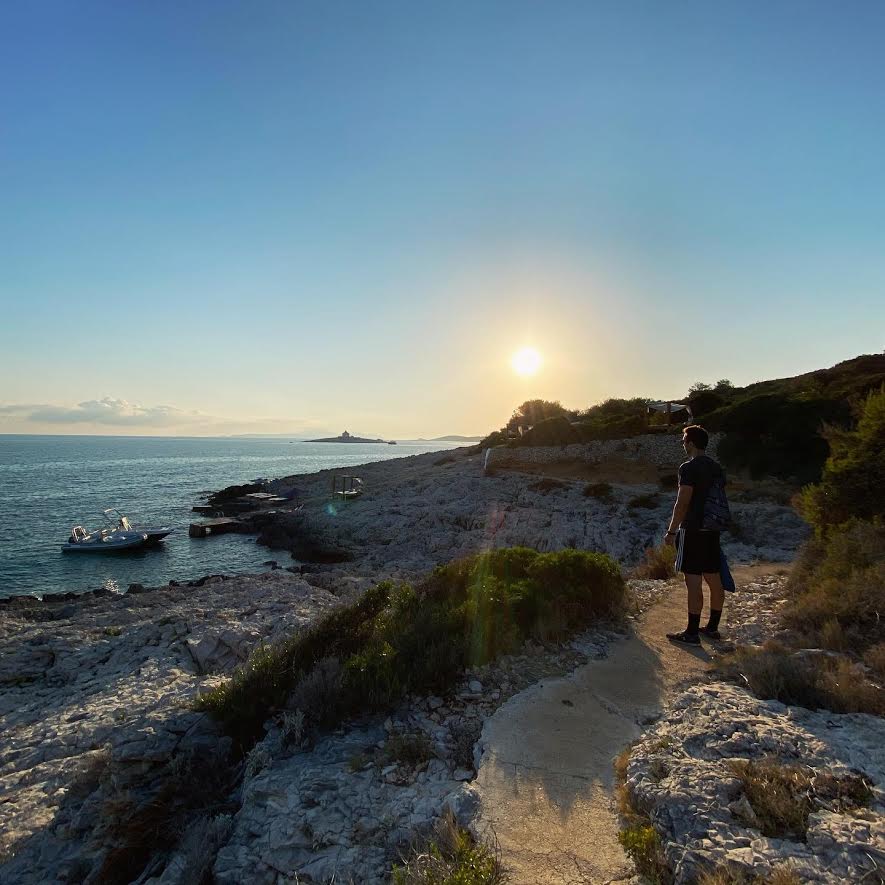
Do you have any advice for people looking to make the transition to digital nomad life?
Think about what you’re trying to optimize for and how different aspects of remote work do or don’t suit your lifestyle. If you’re relocating, research potential destinations before making the move. In order to be effective at your job and maintain good work/life balance, it’s important to be disciplined with your time and to set boundaries.
Most importantly - if remote work is something you want to do - just go for it! Companies are embracing remote work more now than ever. It may take some persistence to find a new role or company, or to negotiate with your current employer (which might be you!). Most decisions aren’t permanent - if it doesn’t work out, you can always go back to what you’re doing now. The grass isn’t always greener on the other side, but you won’t know until you take that leap.
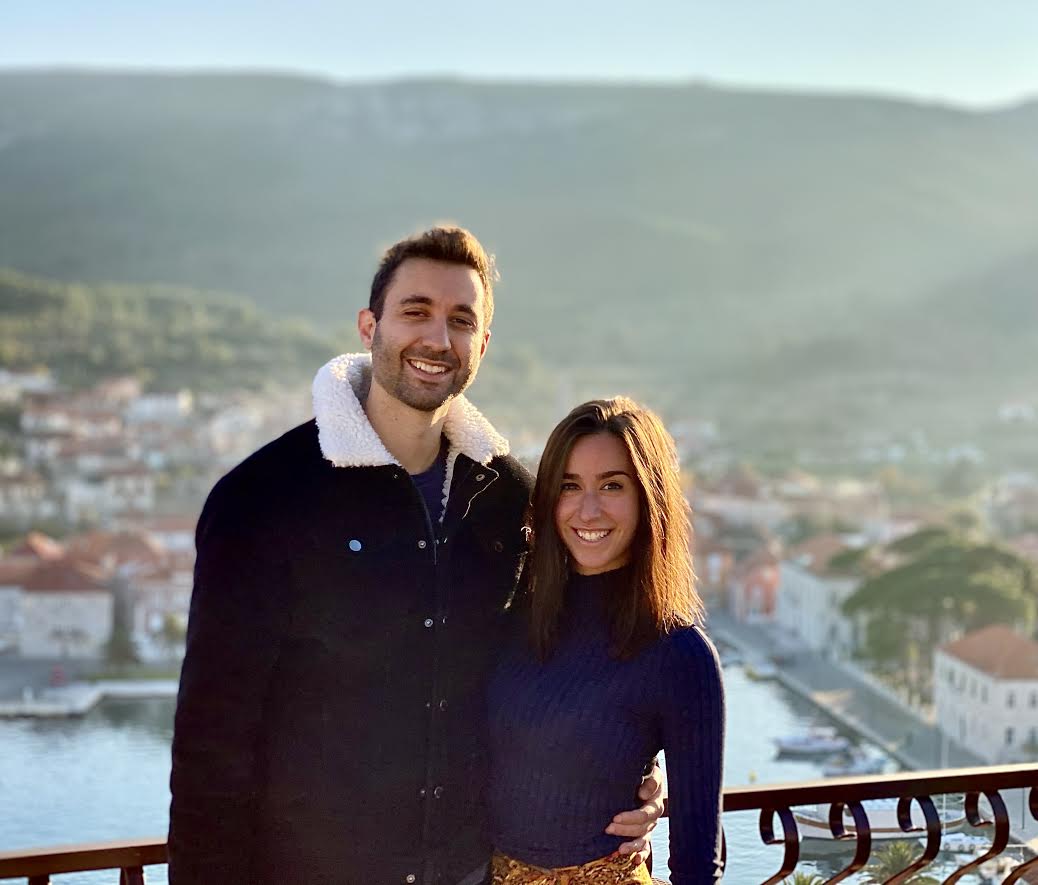
To learn more about Croatia for the digital nomad, check out the Total Croatia Digital Nomad guide.
To follow the latest news about digital nomads in Croatia, follow the dedicated TCN section.
Are you a digital nomad in Croatia who would like to be featured in this series? Please contact us on This email address is being protected from spambots. You need JavaScript enabled to view it. Subject Nomad
Learning Croatian with the Professor of Hvar Dialects: Lesson 1 - The Dalmatian Grunt
November 28, 2020 - Learning Croatian is very easy if you have the right teacher. And it doesn't come any easier than Lesson 1 - the Dalmatian Grunt.
Just over nine years ago, a few weeks after I started the Total Hvar blog which was the founding digital stone of TCN, I was having a coffee with my good friend, Frank John Dubokovich, at the Total Hvar HQ at Cafe Splendid on the main square of Jelsa on the island of Hvar.
It was November, the square was quiet, and a long Dalmatian winter was ahead of us, somewhat devoid of entertainment. Frankie had his video camera with him for some reason, and I suggested that we record a Croatian language series over the winter, with him as the Croatian language professor, to alleviate some of the boredom.
An impromptu idea, which we decided to start that very moment, with no planning whatsoever, and with only one rule - there would only be one recording for each lesson. The pressure was on to get it right first time. What happened next was hilarious.
The first lesson in the series was called The Dalmatian Grunt. Like every other lesson in the series, it was almost totally unplanned but it became an instant YouTube hit, amassing more than 50,000 views all over the world before YouTube removed my channel a few years ago for reasons I am still trying to ascertain. As the camera started rolling, I had no idea even what I was going to ask, but within seconds, a new Internet star was born - Professor Frank John Dubokovich, Guardian of the Hvar Dialects.
His perfect rendition of the Dalmatian Grunt brought an army of adoring new followers (mostly female for some reason), and many more were attracted by his fantastic teaching methods which made Croatian look incredibly easy to learn. Check out the iconic first lesson above.
The Professor's fame spread, and it was not long before famous people were flying halfway across the world for the chance to have a 'kava' with The Professor, including then assistant coach of the Australian football national team, Ante Milicic, who even had The Professor's dulcet tones on his morning wake up call, as Ante explained in the video above.
Ante's adoring fan dash across the globe even made the national media, in an age where I was better known as Tom Bradbury...
As The Professor's fame spread, especially that iconic Dalmatian Grunt, I was fielding media requests for appearances on national television. And then international television came calling, and The Professor agreed to share his colossal linguistic ability with a British TV reality show visiting Croatia, schooling them in the art of the Dalmatian Grunt. As you can see above, they were excellent students.
As luck would have it, the original video recording of The Professor's first lesson was not lost once YouTube deleted the channel, and I found it on the original camera earlier this year. It has just been reuploaded to YouTube once more (see above), so that a new generation can appreciate The Professor's linguisitc genius.
I am looking forward to the comments again. Last time, there were so many from all over the world in the Croatian diaspora. "This is hilarious and just how my Uncle Branko speaks here in Melbourne, even though he left Hvar 60 years ago."
We will be uploading more of the once-deleted videos to our TCN Talks YouTube channel if you want to subscribe for the latest.
Property of the Week: 2-Bed Stone House with Terrace in Jelsa, Hvar
July 23, 2020 - Continuing our look at the real estate opportunities in Dalmatia through the portfolio of Trgostan, this week a delightful 2-bed old stone house in idyllic Jelsa.
An island stone holiday home is the dream of many, and it was the most sought-after property when I had my real estate business on Hvar some 15 years ago.
And while I may have given up my real estate career, the sale of authentic stone houses in Croatia continues, including the latest Property of the Week from Trgostan, in Jelsa on the island of Hvar, which Trgostan describe thus:
A three-storey stone house in Jelsa on the island of Hvar, built over 100 years ago, fully reconstructed in 2001, 70m2 internal space, consisting of:
- ground floor: old "konoba" rearranged into a kitchen with dining area with refreshing atmosphere during summer since it's partly under the ground, but with enough light, bathroom and small terrace;
- 1st floor: bedroom with two windows, storage area and bathroom;
- 2nd floor (attic): indoor stairs, spacious room with two windows;
- The ground floor is connected to the upper two floors by outdoor stairs only. The house doesn't have it's own parking, but a public one is very close to it.
For more information and to book a viewing, visit the original Trgostan listing.
